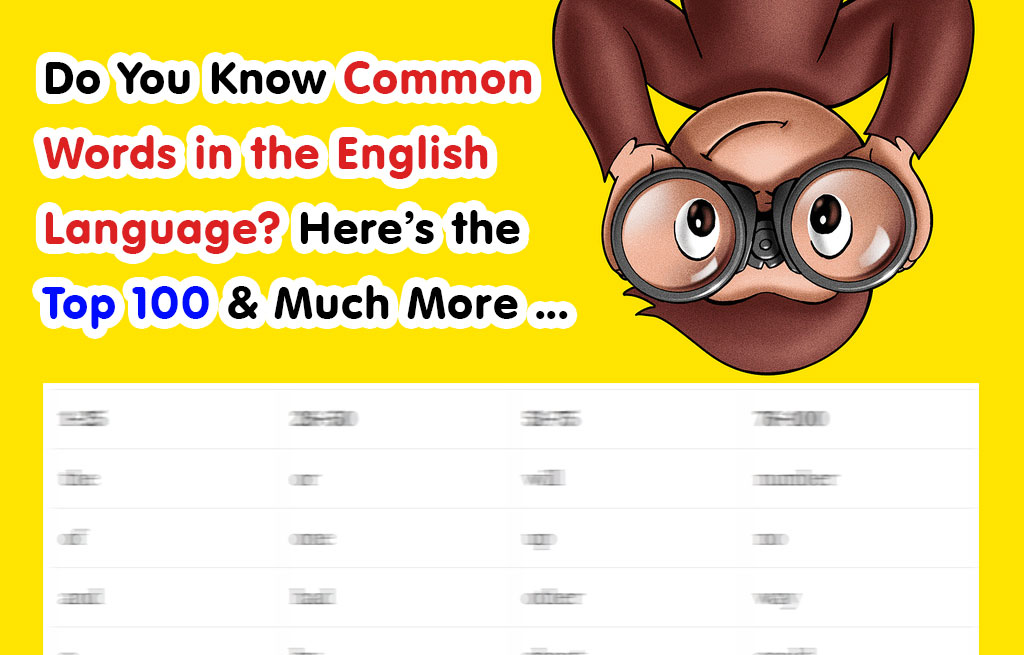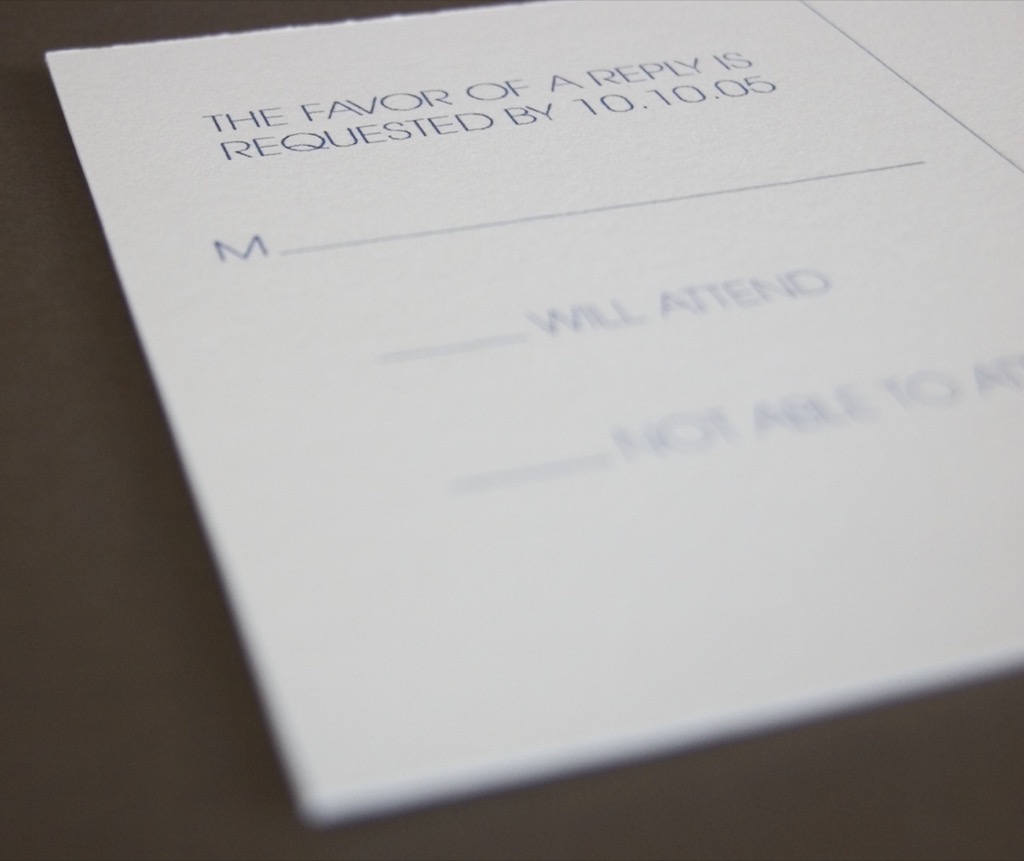Nouns, verbs, prepositions, and adjectives make this list
Updated on March 24, 2019
If you’re an English learner, knowing which words are most commonly used in the language can help you to improve your vocabulary skills and gain confidence in casual conversations.
Don’t count on these words to help you become fluent in English, but do use them as a resource to help you build your skills as you grow more comfortable with the English language.
Common English Words
All
- Everyone in a group.
- All the children did their homework.
And
- A conjunction that joins parts of speech together in a sentence.
- She jumped, jogged, and danced in gym class.
Boy
- A male child.
- The little boy asked his mother if she would buy him candy.
Book
- A long text of words that people read.
- The college student had to read a 500-page book for English class.
Call
- To yell out or speak loudly; to contact someone by phone.
- The girl called out to her brother so he would wait for her.
Car
- A four-wheeled vehicle that transports people from one place to another.
- He drove the car from school to work.
Chair
- A piece of furniture that can hold one person.
- My mother is the only one allowed to sit in the big chair in the living room.
Children
- Young people who have not yet reached adulthood.
- The children didn’t listen to what their parents told them.
City
- A place where many people live.
- New York is the biggest city in the United States.
Dog
- An animal that many people have as a household pet.
- My dog likes to play with bones.
Door
- A passageway from which you can enter or exit a room or a building.
- The students rushed through the classroom door just before the bell rang.
Enemy
- The opposite of a friend. A competitor or rival.
- The hero of the story killed his enemy with a sword.
End
- To finish something or come to a conclusion.
- The end of the book was a happy one.
Enough
- To have more than one needs of something.
- Most Americans have enough food to eat, but that’s not true in other countries.
Eat
- To consume food.
- The children liked to eat apples and bananas after school.
Friend
- The opposite of an enemy. Someone on your side and with whom you enjoy spending time.
- The girl played with her friend in the yard until her mother told her to come inside.
Father
- A male parent.
- The father picked up his child when she started crying.
Go
- To travel to and from a location.
- We go to school every day.
Good
- To behave well or in a kind manner.
- My mother said that if I’m good and don’t hit my brother, she will take me to the movies.
Girl
- A female child.
- The girl dropped her schoolbooks on the ground.
Food
- An edible substance that people, animals, and plants eat to live.
- Starving people do not have enough food to eat and may die.
Hear
- To listen to something.
- I could hear my brother and sister arguing from the other room.
House
- A place where people, often families, live.
- My friend lives in the biggest house on the street.
Inside
- The internal part of something or to be located within something.
- The inside of the house was warm and cozy.
Laugh
- To express that you find something amusing.
- The children laughed after the clown made a joke.
Listen
- To hear something.
- We listen to music because we like to dance.
Man
- An adult male.
- The man was much taller than his son.
Name
- The title of a place, book, person, etc.
- I never liked my name growing up.
Never
- Not ever.
- I am never getting back together with my boyfriend.
Next
- The thing that happens after something else in a sequence; to be situated by something else.
- Let’s go to the next question.
New
- Something just created or unused or unopened.
- My mother bought me a new doll for Christmas. It was still in the package.
Noise
- Loud sounds, especially made by music or a group of people.
- There was so much noise at the party, the neighbors called the police.
Often
- To happen frequently.
- My teacher gets mad because I often forget my homework.
Pair
- Two things that go together.
- I like the new pair of shoes my sister bought me for my birthday.
Pick
- To choose or select.
- I picked the cupcake with vanilla frosting.
Play
- To have fun with someone or engage in an activity or sport.
- I like to play football with my brother.
Room
- A part of a home, building, office or another structure.
- The room at the end of the hall is the coldest in the building.
See
- To watch or observe something.
- I see clouds in the sky, which must mean it will rain soon.
Sell
- To offer a service or a good for a price.
- I am going to sell my surfboard for $50 because it’s time for a new one.
Sit
- To rest on a floor, chair, or another surface.
- The teacher told the children to sit on the carpet.
Speak
- To say something.
- I speak too loudly sometimes.
Smile
- To grin or show pleasure.
- I smile when my brother tells jokes.
Sister
- The opposite of brother. The female child in relation to other children of the same parents.
- My parents took my sister and me to the circus.
Think
- To contemplate something or have an idea or belief.
- I think all pets should have a home.
Then
- Something that comes after an event in a sequence.
- I opened the refrigerator. Then, I ate some food.
Walk
- To travel on foot.
- I walk home from school every day.
Water
- A substance plants, people, animals, and the earth need to survive.
- If animals don’t have enough water to drink, they will die.
Work
- To make a living, engage in an activity for pay, or to reach a goal.
- I work as a teacher because I like children.
Write
- To put something on paper with a pen or pencil. To use a computer to type text.
- I have to write three essays in English class this semester.
Woman
- A female adult.
- That woman was our new school principal.
Yes
- To answer affirmatively or respond to one’s name being called.
- «Yes, I’m here,» the student said when the teacher called her name.
Building your vocabulary with some of the most common words used in the English language is a great start for your journey in learning this beautiful language.
Not only do these common words expand the English terminology that you know, but they also help you with your English conversation skills since they are indeed words that you hear others use everyday.
If you know 1,000 words, you will be between a functional beginner and conversational level in English. In most of the world’s languages, 500 words will be more than enough to get you through any tourist situations and everyday introductions.
Using everyday common words are the most convenient way to learn English. The more you hear these words, the better it is for you to process and understand them.
And the more you use them, the stronger your English skills become. So it’s a great process of learning from others, and at the same time, learning from yourself, too!
Okay, time to share the list! Remember that with these 1,000 words you’ll be able to ask people how they’re doing, tell them about your day and navigate everyday life situations like shopping and public transit. But also keep in mind that native-like fluency, among many other things, requires about 10,000 vocabulary words.
be – “Will you be my friend?”
and – “You and I will always be friends.”
of – “Today is the first of November.”
a – “I saw a bear today.”
in – “She is in her room.”
to – “Let’s go to the park.”
have – “I have a few questions.”
too – “I like her too.”
it – “It is sunny outside.”
I – “I really like it here.”
that – “That door is open.”
for – “This letter is for you.”
you – “You are really nice.”
he – “He is my brother.”
with – “I want to go with you.”
on – “I watch movies on my iPad.”
do – “What will you do now?”
say – “Can I say something?”
this – “This is my favorite cookie.”
they – “They are here!”
at – “Can you pick me up at the mall?”
but – “I’m sorry but she’s away.”
we – “We are going to watch a movie.”
his – “This is his box.”
from – “This card came from my cousin.”
that – “That’s a really cool trick!”
not – “That’s not what I want.”
can’t – “I can’t open it.”
won’t – “I won’t open it.”
by – “Will you come by and see me?”
she – “She is very happy.”
or – “Do you like blue or yellow?”
as – “Her role as an English teacher is very important.”
what – “What are you thinking of?”
go – “I want to go there.”
their – “This is their house.”
can – “What can I do for you?”
who – “Who can help me?”
get – “Can you get me my eyeglasses?”
if – “What if I fail?”
would – “Would you help me out?”
her – “I have her book.”
all – “All my favorite books are on this shelf.”
my – “My mom is coming to visit.”
make – “Can we make our projects together?”
about – “What is this movie about?”
know – “Do you know where this place is?”
will – “I will help you find that place.”
as – “As soon as she’s here, I’ll talk to her.”
up – “I live up in the mountains.”
one – “She is one of my English teachers.”
time – “There was a time I liked to play golf.”
there – “There are so many things I want to learn.”
year – “This is the year I’m finally going to learn English.”
so – “I am so sorry.”
think – “I think I need to lie down.”
when – “When will I see you again?”
which – “Which of these slippers are yours?”
them – “Please give this to them.”
some – “Please give them some of the apples I brought home.”
me – “Can you give me some apples?”
people – “There are so many people at the mall today.”
take – “Please take home some of these apples”
out – “Please throw the trash out.”
into – “My puppy ran into the woods.”
just – “Just close your eyes.”
see – “Did you see that?”
him – “I heard him singing earlier.”
your – “Your mom is here.”
come – “Can your mom and dad come to the party?”
could – “Could you help me with my project?”
now – “I want to watch this now.”
than – “I like this cake better than the other one you showed me.”
like – “I like this bag better than the other one you showed me.”
other – “I like these shoes better than the other ones you showed me.”
how – “How do I turn this on?”
then – “We had breakfast and then we went to church.”
its – “I need to read its manual.”
our – “This is our home now.”
two – “Two cheeseburgers, please.”
more – “Can I have some more milk shake?”
these – “Do you like these ribbons?”
want – “Do you want these ribbons?”
way – “Can you look this way?”
look – “Please look this way.”
first – “She was my very first teacher.”
also – “She was also my best friend.”
new – “I have new shoes.”
because – “I am crying because I’m sad.”
day – “Today is National Friendship day.”
more – “I have more stickers at home.”
use – “How do I use this?”
no – “There’s no electricity now.”
man – “There’s a man outside looking for you.”
find – “Where can I find rare furniture?”
here – “My mom is here.”
thing – “One thing led to another.”
give – “Give her these pearls.”
many – “We shared many dreams together.”
well – “You know me so well.”
only – “You are my only friend here.”
those – “Those boots belong to my friend.”
tell – “Can you tell me which way to go?”
one – “She’s the one he’s been waiting for.”
very – “I’m very upset right now.”
her – “Her grandmother is sick.”
even – “She can’t even stand on her own.”
back – “I’ll be right back.”
any – “Have you had any luck on your research?”
good – “You’re a good person.”
woman – “That woman looks so polished.”
through – “Your faith will see you through tough times.”
us – “Do you want to go with us?”
life – “This is the best day of my life.”
child – “I just saw a child cross the street by herself.”
there – “Did you go there?”
work – “I have to go to work.”
down – “Let’s go down.”
may – “You may take your seats.”
after – “Let’s have dinner after work.”
should – “Should I buy this dress?”
call – “Call me when you get home, okay?”
world – “I want to travel and see the world.”
over – “I can’t wait for this day to be over.”
school – “My cousin goes to school here.”
still – “I still think you should go.”
try – “Can you try to be nicer to him?”
in – “What’s in that box?”
as – “As soon as I get home, I’m going to start watching that series.”
last – “This is my last slice of cake, I promise!”
ask – “Can you ask the waiter to bring us some wine?”
need – “I need some wine tonight!”
too – “I need some wine, too!”
feel – “I feel so tired, I just need to relax and unwind.”
three – “I have three sisters.”
when – “When was the last time you saw them?”
state – “Check out the state of that shed, it’s falling apart.”
never – “I’m never going to drink wine again.”
become – “Over the years we’ve become really close.”
between – “This is just between you and me.”
high – “Give me a high five!”
really – “I really like your painting!”
something – “I have something for you.”
most – “She’s the most beautiful girl I’ve ever seen.”
another – “I’ll have another glass of wine, please.”
much – “I love you guys so much.”
family – “You are like family to me.”
own – “I want to get my own place.”
out – “Get out of my room.”
leave – “I want you to leave.”
put – “Please put down that book and listen to me.”
old – “I feel so old!”
while – “I can wait for you here while you shop.”
mean – “I didn’t mean to sound so angry.”
on – “Can you turn on the lights?”
keep – “Can we keep the lights on tonight?”
student – “I’ve always been a diligent student.”
why – “This is why I don’t go out anymore.”
let – “Why won’t you let him know how you feel?”
great – “This ice cream place is great for families with kids!”
same – “Hey, we’re wearing the same shirt!”
big – “I have this big crush on Brad Pitt.”
group – “The group sitting across our table is so noisy.”
begin – “Where do I begin with this huge project?”
seem – “She may seem quiet, but she’s really outgoing once you get to know her.”
country – “Japan is such a beautiful country!”
help – “I need help with my Math homework.”
talk – “Can we talk in private?”
where – “Where were you last night?”
turn – “If only I could turn back time.”
problem – “The problem is we think we have plenty of time.”
every – “Every person has his own big goal to fulfill.”
start – “This is a great to start to learn the English language.”
hand – “Don’t let go of my hand.”
might – “This might actually work.”
American – “The American culture is so dynamic.”
show – “Can you show me how to use this vacuum cleaner?”
part – “This is my favorite part of the movie!”
about – “What is the story about?”
against – “I am so against domestic abuse!”
place – “This place is wonderful!”
over – “She kept saying this over and over again.”
such – “He is such an annoying person.”
again – “Can we play that game again?”
few – “Just a few more errands and I’m done!”
case – “What an interesting case you are working on now!”
most – “That’s the most interesting story I’ve ever heard.”
week – “I had a rough week.”
company – “Will you keep me company?”
where – “Where are we going?”
system – “What’s wrong with the airport’s system?”
each – “Can you give each of them an apple?”
right – “I’m right this time.”
program – “This community program for teens is really helpful.”
hear – “Did you hear that?”
so – “I’m so sleepy.”
question – “I have a question for you.”
during – “During the session, I saw him fall asleep.”
work – “I have to work this weekend.”
play – “We can play soccer next weekend instead.”
government – “I hope the government does something about the poverty in this country.”
run – “If you see a bear here, run for your life.”
small – “I have a small favor to ask you.”
number – “I have a number of favors to ask you.”
off – “Please turn off the television.”
always – “I always bring pepper spray with me.”
move – “Let’s move on to the next tourist spot.”
like – “I really like you.”
night – “The night is young.”
live – “I’m going to live like there’s no tomorrow.”
Mr. – “Mr. Morris is here.”
point – “You have a point.”
believe – “I believe in you.”
hold – “Just hold my hand.”
today – “I’m going to see you today.”
bring – “Please bring a pen.”
happen – “What will happen if you don’t submit your report on time?”
next – “This is the next best thing.”
without – “I can’t live without my phone.”
before – “Before I go to bed I always wash my face.”
large – “There’s a large amount of data online about that topic.”
all – “That’s all I know about Dinosaurs.”
million – “I have a million questions about this book.”
must – “We must watch this movie together.”
home – “Can we go home now?”
under – “I hid it under my bed.”
water – “I filled the tub with water.”
room – “His room is at the end of the corridor.”
write – “Can you write me a prescription for this?”
mother – “His mother is a very lovely woman.”
area – “This area of this house needs to be fixed.”
national – “That virus has become a national concern.”
money – “She needs money to buy her medicine.”
story – “She shared her story to the media.”
young – “She is so young and so hopeful.”
fact – “It’s a fact: shopping can improve your mood.”
month – “It’s that time of the month!”
different – “Just because she’s different, it doesn’t mean she’s bad.”
lot – “You have a lot of explaining to do.”
right – “Turn right when you reach the corner.”
study – “Let’s study our English lessons together.
book – “Can I borrow your English book?”
eye – “She has the pink eye.”
job – “I love my job.”
word – “Describe yourself in one word.”
though – “Though you are angry now, I’m sure you will forget about this later.”
business – “His business is thriving.”
issue – “This is not an issue for me.”
side – “Whose side are you on, anyway?”
kind – “Always be kind, even to strangers.”
four – “There are four seasons in a year.”
head – “Let’s head back, it’s freezing out here.”
far – “We’ve gone too far and now we’re lost.”
black – “She has long, black hair.”
long – “She has long, brown hair.”
both – “They both love chocolate ice cream.”
little – “I have two little boys with me now.”
house – “The house is so quiet without you.”
yes – “I hope you say yes.”
after – “After all this time, he has finally learned to love.”
since – “Ever since his mom died, he has been cranky and angry at the world.”
long – “That was such a long time ago.”
provide – “Please provide me with a list of your services.”
service – “Do you have a specific dental service to treat this?”
around – “We went around the block.”
friend – “You’re a good friend.”
important – “You’re important to me.”
father – “My father is so important to me.”
sit – “Let’s sit outside together.”
away – “He’s away right now.”
until – “Until when will you be away?”
power – “With great power comes great responsibility.”
hour – “I’ve been checking his temperature every hour.”
game – “Let’s play a game.”
often – “I buy from his bakery as often as I can.”
yet – “He’s not yet home.”
line – “There’s a long line at the grocery cashier.”
political – “I stay away from political discussions.”
end – “It’s the end of an era.”
among – “Among all my pets, he’s my most favorite.”
ever – “Have you ever tried this cake?”
stand – “Can you stand still for a minute?”
bad – “What you did was so bad.”
lose – “I can’t lose you.”
however – “I want to buy this bag, however, I need to save up for it first.”
member – “She’s a member of the babysitter’s club.”
pay – “Let’s pay for our groceries.”
law – “There’s a law against jay-walking.”
meet – “I want you to meet my aunt.”
car – “Let’s go inside my car.”
city – “This is the city that never sleeps.”
almost – “I’m almost done with my report.”
include – “Did you remember to include the summary in your report?”
continue – “Can we continue working tomorrow?”
set – “Great, let me set an appointment for you.”
later – “I’ll finish it later.”
community – “Our community is very tight knit.”
much – “There’s so much to learn in the English language.”
name – “What’s your name?”
five – “I can give you five reasons why you need to watch that video.”
once – “I once had a puppy named Bark.”
white – “I love my white sneakers.”
least – “She’s the least productive among all the employees.”
president – “She was our class president back in high school.”
learn – “I’d love to learn more about the English language.”
real – “What is her real name?”
change – “What can we change so that things will get better?”
team – “They hired a team to do the design of their new office.”
minute – “She’s laughing every minute of every day.”
best – “This is the best potato salad I’ve ever tasted.”
several – “I have several old clothes I need to donate.”
idea – “It was your idea to go to the beach, remember?”
kid – “I loved that toy when I was a kid.”
body – “She worked out hard to achieve a toned body.”
information – “This is the information I need.”
nothing – “There’s nothing we can do now. “
ago – “Three years ago, I visited Japan for the first time.”
right – “You’re right, I want to go back there.”
lead – “Just lead the way and I’ll follow.”
social – “I feel awkward in these social gatherings.”
understand – “I understand how you feel.”
whether – “Whether in big groups or small groups, I always feel a little shy at first.”
back – “Looking back, I knew I was always an introvert.”
watch – “Let’s watch the sun set on the horizon.”
together – “They’re together now.”
follow – “I’ll follow you home.”
around – “You’ll always have me around.”
parent – “Every parent is trying hard and doing their best.”
only – “You are only allowed to go out today.”
stop – “Please stop that.”
face – “Why is your face so red?”
anything – “You can ask me for anything.”
create – “Did you create that presentation? It was so good.”
public – “This is public property.”
already – “I already asked him to resend his report.”
speak – “Could you speak a little louder?”
others – “The others haven’t arrived yet.”
read – “I read somewhere that this house is haunted.”
level – “What level are you in that game?”
allow – “Do you allow your kids to play outside the house?”
add – “Is it okay if we add a bit of sugar to the tea?”
office – “Welcome to my office.”
spend – “How much did you spend on your last shopping spree?”
door – “You left the door open.”
health – “You must take good care of your health.”
person – “You are a good person.”
art – “This is my work of art.”
sure – “Are you sure you want to do this alone?”
such – “You are such a brave little boy.”
war – “The war has finally ended.”
history – “She is my history professor.”
party – “Are you going to her party tonight?”
within – “We support everyone within our small community.”
grow – “We want everyone to grow and thrive in their careers.”
result – “The result of this outreach program is amazing.”
open – “Are you open to teaching on weekends?”
change – “Where can we change her diaper?”
morning – “It’s such a beautiful morning!”
walk – “Come take a walk with me.”
reason – “You are the reason I came home.”
low – “Her blood pressure has gotten really low.”
win – “We can win this match if we work together.”
research – “How is your research going?”
girl – “That girl is in my class.”
guy – “I’ve seen that guy in school before.”
early – “I come to work so early every day.”
food – “Let’s buy some food, I’m hungry!”
before – “Can I talk to you before you go home?”
moment – “The moment she walked in the room, her puppy started to jump and dance again.”
himself – “He cooked this Turkey himself.”
air – “I am loving the cold night air here.”
teacher – “You are the best teacher ever.”
force – “Don’t force him to play with other kids.”
offer – “Can I offer you a ride home?”
enough – “Boys, that’s enough playing for today.”
both – “You both need to change into your sleep clothes now.”
education – “I just want you to get the best education.”
across – “Your dog ran across the park.”
although – “Although she felt tired, she still couldn’t sleep.”
remember – “Do you think she will still remember me after ten years?”
foot – “Her foot got caught in one of the ropes.”
second – “This is the second time she got late this month.”
boy – “There’s a boy in her class who keeps pulling her hair.”
maybe – “Maybe we can have ice cream for dessert.”
toward – “He took a step toward her.”
able – “Will you be able to send me your report today?”
age – “What is the average marrying age these days?”
off – “The cat ran off with the dog.”
policy – “They have a generous return policy.”
everything – “Everything is on sale.”
love – “I love what you’re wearing!”
process – “Wait, give me time to process everything you’re telling me.”
music – “I love music.”
including – “Around 20 people attended, including Bob and Beth.”
consider – “I hope you consider my project proposal.”
appear – “How did that appear out of nowhere?”
actually – “I’m actually just heading out.”
buy – “I’m going to buy these shoes.”
probably – “He’s probably still asleep.”
human – “Give him a break, he is only human.”
wait – “Is it alright if you wait for a few minutes?”
serve – “This blow dryer has served me well for years.”
market – “Let’s visit the Sunday market.”
die – “I don’t want my cat to die, let’s take him to the vet please.”
send – “Please send the package to my address.”
expect – “You can’t expect much from their poor service.”
home – “I can’t wait to go home!”
sense – “I did sense that something was not okay.”
build – “He is going to build his dream house.”
stay – “You can stay with me for a few weeks.”
fall – “Be careful, you might fall.”
oh – “Oh no, I left my phone at home!”
nation – “We have to act as one nation.”
plan – “What’s your plan this time?”
cut – “Don’t cut your hair.”
college – “We met in college.”
interest – “Music is an interest of mine.”
death – “Death is such a heavy topic for me.”
course – “What course did you take up in college?”
someone – “Is there someone who can go with you?”
experience – “What an exciting experience!”
behind – “I’m scared to check what’s behind that door.”
reach – “I can’t reach him, he won’t answer his phone.”
local – “This is a local business.”
kill – “Smoking can kill you.”
six – “I have six books about Psychology.”
remain – “These remain on the top shelf.”
effect – “Wow, the effect of that mascara is great!”
use – “Can I use your phone?”
yeah – “Yeah, he did call me earlier.”
suggest – “He did suggest that to me.”
class – “We were in the same English class.”
control – “Where’s the remote control?”
raise – “It’s so challenging to discipline kids these days.”
care – “I don’t care about what you think.”
perhaps – “Perhaps we can arrive at a compromise.”
little – “There’s a little bird outside my window.”
late – “I am running late for my doctor’s appointment.”
hard – “That test was so hard.”
field – “He’s over there, by the soccer field.”
else – “Is anyone else coming?”
pass – “Can we pass by the grocery store?”
former – “She was my former housemate.”
sell – “We can sell your old couch online.”
major – “It’s a major issue for the project.”
sometimes – “Sometimes I forget to turn off the porch lights.”
require – “They’ll require you to show your I.D.”
along – “Can I tag along your road trip?”
development – “This news development is really interesting.”
themselves – “They can take care of themselves.”
report – “I read her report and it was great!”
role – “She’s going to play the role of Elsa.”
better – “Your singing has gotten so much better!”
economic – “Some countries are facing an economic crisis.”
effort – “The government must make an effort to solve this.”
up – “His grades have gone up.”
decide – “Please decide where to eat.”
rate – “How would you rate the hotel’s service?”
strong – “They have strong customer service here!”
possible – “Maybe it’s possible to change their bathroom amenities.”
heart – “My heart is so full.”
drug – “She got the patent for the drug she has created to cure cancer.”
show – “Can you show me how to solve this puzzle?”
leader – “You are a wonderful leader.”
light – “Watch her face light up when you mention his name.”
voice – “Hearing his mom’s voice is all he need right now.”
wife – “My wife is away for the weekend.”
whole – “I have the whole house to myself.”
police – “The police have questioned him about the incident.”
mind – “This relaxation technique really eases my mind.”
finally – “I can finally move out from my old apartment.”
pull – “My baby niece likes to pull my hair.”
return – “I give her tickles in return.”
free – “The best things in life are free.”
military – “His dad is in the military.”
price – “This is the price you pay for lying.”
report – “Did you report this to the police?”
less – “I am praying for less stress this coming new year.”
according – “According to the weather report, it’s going to rain today.”
decision – “This is a big decision for me.”
explain – “I’ll explain everything later, I promise.”
son – “His son is so cute!”
hope – “I hope I’ll have a son one day.”
even – “Even if they’ve broken up, they still remain friends.”
develop – “That rash could develop into something more serious.”
view – “This view is amazing!”
relationship – “They’ve taken their relationship to the next level.”
carry – “Can you carry my bag for me?”
town – “This town is extremely quiet.”
road – “There’s a road that leads to the edge of the woods.”
drive – “You can’t drive there, you need to walk.”
arm – “He broke his arm during practice.”
true – “It’s true, I’m leaving the company.”
federal – “Animal abuse is now a federal felony!”
break – “Don’t break the law.”
better – “You better learn how to follow rules.”
difference – “What’s the difference between happiness and contentment?”
thank – “I forgot to thank her for the pie she sent us.”
receive – “Did you receive the pie I sent you?”
value – “I value our friendship so much.”
international – “Their brand has gone international!”
building – “This building is so tall!”
action – “You next action is going to be critical.”
full – “My work load is so full now.”
model – “A great leader is a great model of how to do things.”
join – “He wants to join the soccer team.”
season – “Christmas is my favorite season!”
society – “Their society is holding a fund raiser.”
because – “I’m going home because my mom needs me.”
tax – “How much is the current income tax?”
director – “The director yelled ‘Cut!’”
early – “I’m too early for my appointment.”
position – “Please position your hand properly when drawing.”
player – “That basketball player is cute.”
agree – “I agree! He is cute!”
especially – “I especially like his blue eyes.”
record – “Can we record the minutes of this meeting, please?”
pick – “Did you pick a color theme already?”
wear – “Is that what you’re going to wear for the party?”
paper – “You can use a special paper for your invitations.”
special – “Some special paper are even scented!”
space – “Please leave some space to write down your phone number.”
ground – “The ground is shaking.”
form – “A new island was formed after that big earthquake.”
support – “I need your support for this project.”
event – “We’re holding a big event tonight.”
official – “Our official wedding photos are out!”
whose – “Whose umbrella is this?”
matter – “What does it matter anyway?”
everyone – “Everyone thinks I stole that file.”
center – “I hate being the center of attention.”
couple – “The couple is on their honeymoon now.”
site – “This site is so big!”
end – “It’s the end of an era.”
project – “This project file is due tomorrow.”
hit – “He hit the burglar with a bat.”
base – “All moms are their child’s home base.”
activity – “What musical activity can you suggest for my toddler?”
star – “My son can draw a star!”
table – “I saw him draw it while he was writing on the table.”
need – “I need to enroll him to a good preschool.”
court – “There’s a basketball court near our house.”
produce – “Fresh farm produce is the best.”
eat – “I could eat that all day.”
American – “My sister is dating an American.”
teach – “I love to teach English lessons.”
oil – “Could you buy me some cooking oil at the store?”
half – “Just half a liter please.”
situation – “The situation is getting out of hand.”
easy – “I thought you said this was going to be easy?”
cost – “The cost of fuel has increased!”
industry – “The fuel industry is hiking prices.”
figure – “Will our government figure out how to fix this problem?”
face – “I can’t bear to face this horrendous traffic again and again.”
street – “Let’s cross the street.”
image – “There’s an image of him stored inside my mind.”
itself – “The bike itself is pretty awesome.”
phone – “Plus, it has a phone holder.”
either – “I either walk or commute to work.”
data – “How can we simplify this data?”
cover – “Could you cover for me during emergencies?”
quite – “I’m quite satisfied with their work.”
picture – “Picture this: a lake, a cabin, and lots of peace and quiet.
clear – “That picture is so clear inside my head.”
practice – “Let’s practice our dance number.”
piece – “That’s a piece of cake!”
land – “Their plane is going to land soon.”
recent – “This is her most recent social media post.”
describe – “Describe yourself in one word.”
product – “This is my favorite product in their new line of cosmetics.”
doctor – “The doctor is in.”
wall – “Can you post this up on the wall?”
patient – “The patient is in so much pain now.”
worker – “She’s a factory worker.”
news – “I saw that on the news.”
test – “I have to pass this English test.”
movie – “Let’s watch a movie later.”
certain – “There’s a certain kind of magic in the air now.”
north – “Santa lives up north.”
love – ” l love Christmas!”
personal – “This letter is very personal.”
open – “Why did you open and read it?”
support – “Will you support him?”
simply – “I simply won’t tolerate bad behavior.”
third – “This is the third time you’ve lied to me.”
technology – “Write about the advantages of technology.”
catch – “Let’s catch up soon, please!”
step – “Watch your step.”
baby – “Her baby is so adorable.”
computer – “Can you turn on the computer, please?”
type – “You need to type in your password.”
attention – “Can I have your attention, please?”
draw – “Can you draw this for me?”
film – “That film is absolutely mind-blowing.”
Republican – “He is a Republican candidate.”
tree – “That tree has been there for generations.”
source – “You are my source of strength.”
red – “I’ll wear a red dress tonight.”
nearly – “He nearly died in that accident!”
organization – “Their organization is doing great things for street kids.”
choose – “Let me choose a color.”
cause – “We have to see the cause and effect of this experiment.”
hair – “I’ll cut my hair short for a change.”
look – “Can you look at the items I bought?”
point “What is the point of all this?
century – “We’re living in the 21st century, Mary.”
evidence – “The evidence clearly shows that he is guilty.”
window – “I’ll buy window curtains next week.”
difficult “Sometimes, life can be difficult.”
listen – “You have to listen to your teacher.”
soon – “I will launch my course soon.”
culture – “I hope they understand our culture better.”
billion – “My target is to have 1 billion dollars in my account by the end of the year.”
chance – “Is there any chance that you can do this for me?”
brother – “My brother always have my back.”
energy – “Now put that energy into walking.”
period – “They covered a period of twenty years.”
course – “Have seen my course already?”
summer – “I’ll go to the beach in summer.”
less – “Sometimes, less is more.”
realize – “I just realize that I have a meeting today.”
hundred – “I have a hundred dollars that I can lend you.”
available – “I am available to work on your project.”
plant – “Plant a seed.”
likely – “It was likely a deer trail.”
opportunity – “It was the perfect opportunity to test her theory.”
term – “I’m sure there’s a Latin term for it.”
short – “It was just a short stay at the hotel.”
letter – “I already passed my letter of intent.”
condition – “Do you know the condition I am in?”
choice – “I have no choice.”
place – “Let’s meet out at meeting place.”
single – “I am a single parent.”
rule – “It’s the rule of the law.”
daughter – “My daughter knows how to read now.”
administration – “I will take this up with the administration.”
south – “I am headed south.”
husband – “My husband just bought me a ring for my birthday.”
Congress – “It will be debated at the Congress.”
floor – “She is our floor manager.”
campaign – “I handled their election campaign.”
material – “She had nothing material to report.”
population – “The population of the nearest big city was growing.”
well – “I wish you well.”
call – ” I am going to call the bank.”
economy – “The economy is booming.”
medical -“She needs medical assistance.”
hospital – “I’ll take her to the nearest hospital.”
church – “I saw you in church last Sunday.”
close -“Please close the door.”
thousand – “There are a thousand reasons to learn English!”
risk – “Taking a risk can be rewarding.”
current – “What is your current address?”
fire – “Make sure your smoke alarm works in case of fire.”
future -“The future is full of hope.”
wrong – “That is the wrong answer.”
involve – “We need to involve the police.”
defense – “What is your defense or reason you did this?”
anyone – “Does anyone know the answer?”
increase – “Let’s increase your test score.”
security – “Some apartment buildings have security.”
bank – “I need to go to the bank to withdraw some money.”
myself – “I can clean up by myself.”
certainly – “I can certainly help clean up.”
west – “If you drive West, you will arrive in California.”
sport – “My favorite sport is soccer.”
board – “Can you see the board?”
seek – “Seek and you will find.”
per – “Lobster is $20 per pound.”
subject – “My favorite subject is English!”
officer – “Where can I find a police officer?”
private – “This is a private party.”
rest – “Let’s take a 15 minute rest.”
behavior – “This dog’s behavior is excellent.”
deal – “A used car can be a good deal.”
performance – “Your performance can be affected by your sleep.”
fight – “I don’t want to fight with you.”
throw – “Throw me the ball!”
top – “You are a top student.”
quickly – “Let’s finish reading this quickly.”
past – “In the past, my English was not as good as it is today.”
goal – “My goal is to speak English fluently.”
second – “My second goal is to increase my confidence.”
bed – “I go to bed around 10pm.”
order – “I would like to order a book.”
author – “The author of this series is world-famous.”
fill – “I need to fill (up) my gas tank.”
represent – “I represent my family.”
focus – “Turn off your phone and the TV and focus on your studies!”
foreign – “It’s great having foreign friends.”
drop – “Please don’t drop the eggs!”
plan – “Let’s make a plan.”
blood – “The hospital needs people to give blood.”
upon – “Once upon a time, a princess lived in a castle.”
agency – “Let’s contract an agency to help with marketing.”
push – “The door says ‘push,’ not ‘pull.’”
nature – “I love walking in nature!”
color – “My favorite color is blue.”
no – “‘No’ is one of the shortest complete sentences.”
recently – “I cleaned the bathroom most recently, so I think it’s your turn this time.”
store – “I’m going to the store to buy some bread.”
reduce – “Reduce, reuse, and recycle are the ways to help the environment.”
sound – “I like the sound of wind chimes.”
note – “Please take notes during the lesson.”
fine – “I feel fine.”
before – “Before the movie, let’s buy popcorn!”
near – “Near, far, wherever you are, I do believe that the heart goes on.”
movement – “The environmental movement is an international movement.”
page – “Please turn to page 62.”
enter – “You can enter the building on the left.”
share – “Let me share my idea.”
than – “Ice cream has more calories than water.”
common – “Most people can find something in common with each other.”
poor – “We had a poor harvest this year because it was so dry.”
other – “This pen doesn’t work, try the other one.”
natural – “This cleaner is natural, there aren’t any chemicals in it.”
race – “We watched the car race on TV.”
concern – “Thank you for your concern, but I’m fine.”
series – “What is your favorite TV series?”
significant – “His job earns a significant amount of money.”
similar – “These earrings don’t match, but they are similar.”
hot – “Don’t touch the stove, it’s still hot.”
language – “Learning a new language is fun.”
each – “Put a flower in each vase.”
usually – “I usually shop at the corner store.”
response – “I didn’t expect his response to come so soon.”
dead – “My phone is dead, let me charge it.”
rise – “The sun will rise at 7:00 a.m.”
animal – “What kind of animal is that?”
factor – “Heredity is a factor in your overall health.”
decade – “I’ve lived in this city for over a decade.”
article – “Did you read that newspaper article?”
shoot – “He wants to shoot arrows at the target.”
east – “Drive east for three miles.”
save – “I save all my cans for recycling.”
seven – “There are seven slices of pie left.”
artist – “Taylor Swift is a recording artist.”
away – “I wish that mosquito would go away.”
scene – “He painted a colorful street scene.”
stock – “That shop has a good stock of postcards.”
career – “Retail sales is a good career for some people.”
despite – “Despite the rain, we will still have the picnic.”
central – “There is good shopping in central London.”
eight – “That recipe takes eight cups of flour.”
thus – “We haven’t had any problems thus far.”
treatment – “I will propose a treatment plan for your injury.”
beyond – “The town is just beyond those mountains.”
happy – “Kittens make me happy.”
exactly – “Use exactly one teaspoon of salt in that recipe.”
protect – “A coat will protect you from the cold weather.”
approach – “The cat slowly approached the bird.”
lie – “Teach your children not to lie.”
size – “What size is that shirt?
dog – “Do you think a dog is a good pet?”
fund – “I have a savings fund for college.”
serious – “She is so serious, she never laughs.”
occur – “Strange things occur in that empty house.”
media – “That issue has been discussed in the media.”
ready – “Are you ready to leave for work?”
sign – “That store needs a bigger sign.”
thought – “I’ll have to give it some thought.”
list – “I made a list of things to do.”
individual – “You can buy an individual or group membership.”
simple – “The appliance comes with simple instructions.”
quality – “I paid a little more for quality shoes.”
pressure – “There is no pressure to finish right now.”
accept – “Will you accept my credit card?”
answer – “Give me your answer by noon tomorrow.”
hard – “That test was very hard.”
resource – “The library has many online resources.”
identify – “I can’t identify that plant.”
left – “The door is on your left as you approach.”
meeting – “We’ll have a staff meeting after lunch.”
determine – “Eye color is genetically determined.”
prepare – “I’ll prepare breakfast tomorrow.”
disease – “Face masks help prevent disease.”
whatever – “Choose whatever flavor you like the best.”
success – “Failure is the back door to success.”
argue – “It’s not a good idea to argue with your boss.”
cup – “Would you like a cup of coffee?”
particularly – “It’s not particularly hot outside, just warm.”
amount – “It take a large amount of food to feed an elephant.”
ability – “He has the ability to explain things well.”
staff – “There are five people on staff here.”
recognize – “Do you recognize the person in this photo?”
indicate – “Her reply indicated that she understood.”
character – “You can trust people of good character.”
growth – “The company has seen strong growth this quarter.”
loss – “The farmer suffered heavy losses after the storm.”
degree – “Set the oven to 300 degrees.”
wonder – “I wonder if the Bulls will win the game.”
attack – “The army will attack at dawn.”
herself – “She bought herself a new coat.”
region – “What internet services are in your region?”
television – “I don’t watch much television.”
box – “I packed my dishes in a strong box.”
TV – “There is a good movie on TV tonight.”
training – “The company will pay for your training.”
pretty – “That is a pretty dress.”
trade – “The stock market traded lower today.”
deal – “I got a good deal at the store.”
election – “Who do you think will win the election?”
everybody – “Everybody likes ice cream.”
physical – “Keep a physical distance of six feet.”
lay – “Lay the baby in her crib, please.”
general – “My general impression of the restaurant was good.”
feeling – “I have a good feeling about this.”
standard – “The standard fee is $10.00.”
bill – “The electrician will send me a bill.”
message – “You have a text message on your phone.”
fail – “I fail to see what is so funny about that.”
outside – “The cat goes outside sometimes.”
arrive – “When will your plane arrive?”
analysis – “I’ll give you my analysis when I’ve seen everything.”
benefit – “There are many health benefits to quinoa.”
name – “What’s your name?”
sex – “Do you know the sex of your baby yet?”
forward – “Move the car forward a few feet.”
lawyer – “My lawyer helped me write a will.”
present – “If everyone is present, the meeting can begin.”
section – “What section of the stadium are you sitting in?”
environmental – “Environmental issues are in the news.”
glass – “Glass is much heavier than plastic.”
answer – “Could you answer a question for me?”
skill – “His best skill is woodworking.”
sister – “My sister lives close to me.”
PM – “The movie starts at 7:30 PM.”
professor – “Dr. Smith is my favorite professor.”
operation – “The mining operation employs thousands of people.”
financial – “I keep my accounts at my financial institution.”
crime – “The police fight crime.”
stage – “A caterpillar is the larval stage of a butterfly.”
ok – “Would it be ok to eat out tonight?”
compare – “We should compare cars before we buy one.”
authority – “City authorities make the local laws.”
miss – “I miss you, when will I see you again?”
design – “We need to design a new logo.”
sort – “Let’s sort these beads according to color.”
one – “I only have one cat.”
act – “I’ll act on your information today.”
ten – “The baby counted her ten toes.”
knowledge – “Do you have the knowledge to fix that?”
gun – “Gun ownership is a controversial topic.”
station – “There is a train station close to my house.”
blue – “My favorite color is blue.”
state – “After the accident I was in a state of shock.”
strategy – “Our new corporate strategy is written here.”
little – “I prefer little cars.”
clearly – “The instructions were clearly written.”
discuss – “We’ll discuss that at the meeting.”
indeed – “Your mother does indeed have hearing loss.”
force – “It takes a lot of force to open that door.”
truth – “Please tell me the truth.”
song – “That’s a beautiful song.”
example – “I need an example of that grammar point, please.”
democratic – “Does Australia have a democratic government?”
check – “Please check my work to be sure it’s correct.”
environment – “We live in a healthy environment.”
leg – “The boy broke his leg.”
dark – “Turn on the light, it’s dark in here.”
public – “Masks must be worn in public places.”
various – “That rug comes in various shades of gray.”
rather – “Would you rather have a hamburger than a hot dog?”
laugh – “That movie always makes me laugh.”
guess – “If you don’t know, just guess.”
executive – “The company’s executives are paid well.”
set – “Set the glass on the table, please.”
study – “He needs to study for the test.”
prove – “The employee proved his worth.”
hang – “Please hang your coat on the hook.”
entire – “He ate the entire meal in 10 minutes.”
rock – “There are decorative rocks in the garden.”
design – “The windows don’t open by design.”
enough – “Have you had enough coffee?”
forget – “Don’t forget to stop at the store.”
since – “She hasn’t eaten since yesterday.”
claim – “I made an insurance claim for my car accident.”
note – “Leave me a note if you’re going to be late.”
remove – “Remove the cookies from the oven.”
manager – “The manager will look at your application.”
help – “Could you help me move this table?”
close – “Close the door, please.”
sound – “The dog did not make a sound.”
enjoy – “I enjoy soda.”
network – “Band is the name of our internet network.”
legal – “The legal documents need to be signed.”
religious – “She is very religious, she attends church weekly.”
cold – “My feet are cold.”
form – “Please fill out this application form.”
final – “The divorce was final last month.”
main – “The main problem is a lack of money.”
science – “He studies health science at the university.”
green – “The grass is green.”
memory – “He has a good memory.”
card – “They sent me a card for my birthday.”
above – “Look on the shelf above the sink.”
seat – “That’s a comfortable seat.”
cell – “Your body is made of millions of cells.”
establish – “They established their business in 1942.”
nice – “That’s a very nice car.”
trial – “They are employing her on a trial basis.”
expert – “Matt is an IT expert.”
that – “Did you see that movie?”
spring – “Spring is the most beautiful season.”
firm – “Her ‘no” was very firm, she won’t change her mind.”
Democrat – “The Democrats control the Senate.”
radio – “I listen to the radio in the car.”
visit – “We visited the museum today.”
management – “That store has good management.”
care – “She cares for her mother at home.”
avoid – “You should avoid poison ivy.”
imagine – “Can you imagine if pigs could fly?”
tonight – “Would you like to go out tonight?”
huge – “That truck is huge!”
ball – “He threw the ball to the dog.”
no – “I said ‘no,’ please don’t ask again.”
close – “Close the window, please.”
finish – “Did you finish your homework?”
yourself – “You gave yourself a haircut?”
talk – “He talks a lot.”
theory – “In theory, that’s a good plan.”
impact – “The drought had a big impact on the crops.”
respond – “He hasn’t responded to my text yet.”
statement – “The police chief gave a statement to the media.”
maintain – “Exercise helps you maintain a healthy weight.”
charge – “I need to charge my phone.”
popular – “That’s a popular restaurant.”
traditional – “They serve traditional Italian food there.”
onto – “Jump onto the boat and we’ll go fishing.”
reveal – “Washing off the dirt revealed the boy’s skinned knee.”
direction – “What direction is the city from here?”
weapon – “No weapons are allowed in government buildings.”
employee – “That store only has three employees.”
cultural – “There is cultural significance to those old ruins.”
contain – “The carton contains a dozen egges.”
peace – “World leaders gathered for peace talks.”
head – “My head hurts.”
control – “Keep control of the car.”
base – “The glass has a heavy base so it won’t fall over.”
pain – “I have chest pain.”
apply – “Maria applied for the job.”
play – “The children play at the park.”
measure – “Measure twice, cut once.”
wide – “The doorway was very wide.”
shake – “Don’t shake the can of soda.”
fly – “We can fly to France next year.”
interview – “My job interview went well.”
manage – “Did you manage to find the keys?”
chair – “The table has six matching chairs.”
fish – “I don’t enjoy eating fish.”
particular – “That particular style looks good on you.”
camera – “I use the camera on my phone.”
structure – “The building’s structure is solid.”
politics – “Mitch is very active in politics.”
perform – “The singer will perform tonight.”
bit – “It rained a little bit last night.”
weight – “Keep track of your pet’s weight.”
suddenly – “The storm came up suddenly.”
discover – “You’ll discover treasures at that thrift store.”
candidate – “There are ten candidates for the position.”
top – “The flag flies on the top of that building.”
production – “Factory production has improved over the summer.”
treat – “Give yourself a treat for a job well done.”
trip – “We are taking a trip to Florida in January.”
evening – “I’m staying home this evening.”
affect – “My bank account will affect how much I can buy.”
inside – “The cat stays inside.”
conference – “There will be expert presenters at the conference.”
unit – “A foot is a unit of measure.”
best – “Those are the best glasses to buy.”
style – “My dress is out of style.”
adult – “Adults pay full price, but children are free.”
worry – “Don’t worry about tomorrow.”
range – My doctor offered me a range of options.
mention – “Can you mention me in your story?”
rather – “Rather than focusing on the bad things, let’s be grateful for the good things.”
far – “I don’t want to move far from my family.”
deep – “That poem about life is deep.”
front – “Please face front.”
edge – “Please do not stand so close to the edge of the cliff.”
individual – “These potato chips are in an individual serving size package.”
specific – “Could you be more specific?”
writer – “You are a good writer.”
trouble – “Stay out of trouble.”
necessary – “It is necessary to sleep.”
throughout – “Throughout my life I have always enjoyed reading.”
challenge – “I challenge you to do better.”
fear – “Do you have any fears?”
shoulder – “You do not have to shoulder all the work on your own.”
institution – “Have you attended any institution of higher learning?”
middle – “I am a middle child with one older brother and one younger sister.”
sea – “I want to sail the seven seas.”
dream – “I have a dream.”
bar – “A bar is a place where alcohol is served.”
beautiful – “You are beautiful.”
property – “Do you own property, like a house?”
instead – “Instead of eating cake I will have fruit.”
improve – “I am always looking for ways to improve.”
stuff – “When I moved, I realized I have a lot of stuff!”
claim – “I claim to be a fast reader, but actually I am average.”
These 1000 common words are just a speck of the many English terms you can learn! Aren’t you excited to learn more? For now, focus on familiarizing yourself with these words. And make a conscious effort to use them in your everyday conversations.
The power of everyday English conversations is truly remarkable. And it’s the best way to deepen your learning and love for the language.
If you want more lessons relating to English vocabulary, here’s a great lesson that talks about the different ways you can improve your English vocabulary fast.
Studies that estimate and rank the most common words in English examine texts written in English. Perhaps the most comprehensive such analysis is one that was conducted against the Oxford English Corpus (OEC), a massive text corpus that is written in the English language.
In total, the texts in the Oxford English Corpus contain more than 2 billion words.[1] The OEC includes a wide variety of writing samples, such as literary works, novels, academic journals, newspapers, magazines, Hansard’s Parliamentary Debates, blogs, chat logs, and emails.[2]
Another English corpus that has been used to study word frequency is the Brown Corpus, which was compiled by researchers at Brown University in the 1960s. The researchers published their analysis of the Brown Corpus in 1967. Their findings were similar, but not identical, to the findings of the OEC analysis.
According to The Reading Teacher’s Book of Lists, the first 25 words in the OEC make up about one-third of all printed material in English, and the first 100 words make up about half of all written English.[3] According to a study cited by Robert McCrum in The Story of English, all of the first hundred of the most common words in English are of Old English origin,[4] except for «people», ultimately from Latin «populus», and «because», in part from Latin «causa».
Some lists of common words distinguish between word forms, while others rank all forms of a word as a single lexeme (the form of the word as it would appear in a dictionary). For example, the lexeme be (as in to be) comprises all its conjugations (is, was, am, are, were, etc.), and contractions of those conjugations.[5] These top 100 lemmas listed below account for 50% of all the words in the Oxford English Corpus.[1]
100 most common words
A list of 100 words that occur most frequently in written English is given below, based on an analysis of the Oxford English Corpus (a collection of texts in the English language, comprising over 2 billion words).[1] A part of speech is provided for most of the words, but part-of-speech categories vary between analyses, and not all possibilities are listed. For example, «I» may be a pronoun or a Roman numeral; «to» may be a preposition or an infinitive marker; «time» may be a noun or a verb. Also, a single spelling can represent more than one root word. For example, «singer» may be a form of either «sing» or «singe». Different corpora may treat such difference differently.
The number of distinct senses that are listed in Wiktionary is shown in the polysemy column. For example, «out» can refer to an escape, a removal from play in baseball, or any of 36 other concepts. On average, each word in the list has 15.38 senses. The sense count does not include the use of terms in phrasal verbs such as «put out» (as in «inconvenienced») and other multiword expressions such as the interjection «get out!», where the word «out» does not have an individual meaning.[6] As an example, «out» occurs in at least 560 phrasal verbs[7] and appears in nearly 1700 multiword expressions.[8]
The table also includes frequencies from other corpora. Note that as well as usage differences, lemmatisation may differ from corpus to corpus – for example splitting the prepositional use of «to» from the use as a particle. Also the Corpus of Contemporary American English (COCA) list includes dispersion as well as frequency to calculate rank.
| Word | Parts of speech | OEC rank | COCA rank[9] | Dolch level | Polysemy |
|---|---|---|---|---|---|
| the | Article | 1 | 1 | Pre-primer | 12 |
| be | Verb | 2 | 2 | Primer | 21 |
| to | Preposition | 3 | 7, 9 | Pre-primer | 17 |
| of | Preposition | 4 | 4 | Grade 1 | 12 |
| and | Conjunction | 5 | 3 | Pre-primer | 16 |
| a | Article | 6 | 5 | Pre-primer | 20 |
| in | Preposition | 7 | 6, 128, 3038 | Pre-primer | 23 |
| that | Conjunction et al. | 8 | 12, 27, 903 | Primer | 17 |
| have | Verb | 9 | 8 | Primer | 25 |
| I | Pronoun | 10 | 11 | Pre-primer | 7 |
| it | Pronoun | 11 | 10 | Pre-primer | 18 |
| for | Preposition | 12 | 13, 2339 | Pre-primer | 19 |
| not | Adverb et al. | 13 | 28, 2929 | Pre-primer | 5 |
| on | Preposition | 14 | 17, 155 | Primer | 43 |
| with | Preposition | 15 | 16 | Primer | 11 |
| he | Pronoun | 16 | 15 | Primer | 7 |
| as | Adverb, conjunction, et al. | 17 | 33, 49, 129 | Grade 1 | 17 |
| you | Pronoun | 18 | 14 | Pre-primer | 9 |
| do | Verb, noun | 19 | 18 | Primer | 38 |
| at | Preposition | 20 | 22 | Primer | 14 |
| this | Determiner, adverb, noun | 21 | 20, 4665 | Primer | 9 |
| but | Preposition, adverb, conjunction | 22 | 23, 1715 | Primer | 17 |
| his | Possessive pronoun | 23 | 25, 1887 | Grade 1 | 6 |
| by | Preposition | 24 | 30, 1190 | Grade 1 | 19 |
| from | Preposition | 25 | 26 | Grade 1 | 4 |
| they | Pronoun | 26 | 21 | Primer | 6 |
| we | Pronoun | 27 | 24 | Pre-primer | 6 |
| say | Verb et al. | 28 | 19 | Primer | 17 |
| her | Possessive pronoun | 29, 106 | 42 | Grade 1 | 3 |
| she | Pronoun | 30 | 31 | Primer | 7 |
| or | Conjunction | 31 | 32 | Grade 2 | 11 |
| an | Article | 32 | (a) | Grade 1 | 6 |
| will | Verb, noun | 33 | 48, 1506 | Primer | 16 |
| my | Possessive pronoun | 34 | 44 | Pre-primer | 5 |
| one | Noun, adjective, et al. | 35 | 51, 104, 839 | Pre-primer | 24 |
| all | Adjective | 36 | 43, 222 | Primer | 15 |
| would | Verb | 37 | 41 | Grade 2 | 13 |
| there | Adverb, pronoun, et al. | 38 | 53, 116 | Primer | 14 |
| their | Possessive pronoun | 39 | 36 | Grade 2 | 2 |
| what | Pronoun, adverb, et al. | 40 | 34 | Primer | 19 |
| so | Conjunction, adverb, et al. | 41 | 55, 196 | Primer | 18 |
| up | Adverb, preposition, et al. | 42 | 50, 456 | Pre-primer | 50 |
| out | Preposition | 43 | 64, 149 | Primer | 38 |
| if | Conjunction | 44 | 40 | Grade 3 | 9 |
| about | Preposition, adverb, et al. | 45 | 46, 179 | Grade 3 | 18 |
| who | Pronoun, noun | 46 | 38 | Primer | 5 |
| get | Verb | 47 | 39 | Primer | 37 |
| which | Pronoun | 48 | 58 | Grade 2 | 7 |
| go | Verb, noun | 49 | 35 | Pre-primer | 54 |
| me | Pronoun | 50 | 61 | Pre-primer | 10 |
| when | Adverb | 51 | 57, 136 | Grade 1 | 11 |
| make | Verb, noun | 52 | 45 | Grade 2 [as «made»] | 48 |
| can | Verb, noun | 53 | 37, 2973 | Pre-primer | 18 |
| like | Preposition, verb | 54 | 74, 208, 1123, 1684, 2702 | Primer | 26 |
| time | Noun | 55 | 52 | Dolch list of 95 nouns | 14 |
| no | Determiner, adverb | 56 | 93, 699, 916, 1111, 4555 | Primer | 10 |
| just | Adjective | 57 | 66, 1823 | 14 | |
| him | Pronoun | 58 | 68 | 5 | |
| know | Verb, noun | 59 | 47 | 13 | |
| take | Verb, noun | 60 | 63 | 66 | |
| people | Noun | 61 | 62 | 9 | |
| into | Preposition | 62 | 65 | 10 | |
| year | Noun | 63 | 54 | 7 | |
| your | Possessive pronoun | 64 | 69 | 4 | |
| good | Adjective | 65 | 110, 2280 | 32 | |
| some | Determiner, pronoun | 66 | 60 | 10 | |
| could | Verb | 67 | 71 | 6 | |
| them | Pronoun | 68 | 59 | 3 | |
| see | Verb | 69 | 67 | 25 | |
| other | Adjective, pronoun | 70 | 75, 715, 2355 | 12 | |
| than | Conjunction, preposition | 71 | 73, 712 | 4 | |
| then | Adverb | 72 | 77 | 10 | |
| now | Preposition | 73 | 72, 1906 | 13 | |
| look | Verb | 74 | 85, 604 | 17 | |
| only | Adverb | 75 | 101, 329 | 11 | |
| come | Verb | 76 | 70 | 20 | |
| its | Possessive pronoun | 77 | 78 | 2 | |
| over | Preposition | 78 | 124, 182 | 19 | |
| think | Verb | 79 | 56 | 10 | |
| also | Adverb | 80 | 87 | 2 | |
| back | Noun, adverb | 81 | 108, 323, 1877 | 36 | |
| after | Preposition | 82 | 120, 260 | 14 | |
| use | Verb, noun | 83 | 92, 429 | 17 | |
| two | Noun | 84 | 80 | 6 | |
| how | Adverb | 85 | 76 | 11 | |
| our | Possessive pronoun | 86 | 79 | 3 | |
| work | Verb, noun | 87 | 117, 199 | 28 | |
| first | Adjective | 88 | 86, 2064 | 10 | |
| well | Adverb | 89 | 100, 644 | 30 | |
| way | Noun, adverb | 90 | 84, 4090 | 16 | |
| even | Adjective | 91 | 107, 484 | 23 | |
| new | Adjective et al. | 92 | 88 | 18 | |
| want | Verb | 93 | 83 | 10 | |
| because | Conjunction | 94 | 89, 509 | 7 | |
| any | Pronoun | 95 | 109, 4720 | 4 | |
| these | Pronoun | 96 | 82 | 2 | |
| give | Verb | 97 | 98 | 19 | |
| day | Noun | 98 | 90 | 9 | |
| most | Adverb | 99 | 144, 187 | 12 | |
| us | Pronoun | 100 | 113 | 6 |
Parts of speech
The following is a very similar list, subdivided by part of speech.[1] The list labeled «Others» includes pronouns, possessives, articles, modal verbs, adverbs, and conjunctions.
| Rank | Nouns | Verbs | Adjectives | Prepositions | Others |
|---|---|---|---|---|---|
| 1 | time | be | good | to | the |
| 2 | person | have | new | of | and |
| 3 | year | do | first | in | a |
| 4 | way | say | last | for | that |
| 5 | day | get | long | on | I |
| 6 | thing | make | great | with | it |
| 7 | man | go | little | at | not |
| 8 | world | know | own | by | he |
| 9 | life | take | other | from | as |
| 10 | hand | see | old | up | you |
| 11 | part | come | right | about | this |
| 12 | child | think | big | into | but |
| 13 | eye | look | high | over | his |
| 14 | woman | want | different | after | they |
| 15 | place | give | small | her | |
| 16 | work | use | large | she | |
| 17 | week | find | next | or | |
| 18 | case | tell | early | an | |
| 19 | point | ask | young | will | |
| 20 | government | work | important | my | |
| 21 | company | seem | few | one | |
| 22 | number | feel | public | all | |
| 23 | group | try | bad | would | |
| 24 | problem | leave | same | there | |
| 25 | fact | call | able | their |
See also
- Basic English
- Frequency analysis, the study of the frequency of letters or groups of letters
- Letter frequencies
- Oxford English Corpus
- Swadesh list, a compilation of basic concepts for the purpose of historical-comparative linguistics
- Zipf’s law, a theory stating that the frequency of any word is inversely proportional to its rank in a frequency table
Word lists
- Dolch Word List, a list of frequently used English words
- General Service List
- Word lists by frequency
References
- ^ a b c d «The Oxford English Corpus: Facts about the language». OxfordDictionaries.com. Oxford University Press. What is the commonest word?. Archived from the original on December 26, 2011. Retrieved June 22, 2011.
- ^ «The Oxford English Corpus». AskOxford.com. Archived from the original on May 4, 2006. Retrieved June 22, 2006.
- ^ The First 100 Most Commonly Used English Words Archived 2013-06-16 at the Wayback Machine.
- ^ Bill Bryson, The Mother Tongue: English and How It Got That Way, Harper Perennial, 2001, page 58
- ^ Benjamin Zimmer. June 22, 2006. Time after time after time…. Language Log. Retrieved June 22, 2006.
- ^ Benjamin, Martin (2019). «Polysemy in top 100 Oxford English Corpus words within Wiktionary». Teach You Backwards. Retrieved December 28, 2019.
- ^ Garcia-Vega, M (2010). «Teasing out the meaning of «out»«. 29th International Conference on Lexis and Grammar.
- ^ «out — English-French Dictionary». www.wordreference.com. Retrieved November 22, 2022.
- ^ «Word frequency: based on 450 million word COCA corpus». www.wordfrequency.info. Retrieved April 11, 2018.
External links
Reading and spelling can be difficult for children and adults learning the English language. How can the letters “ph” or “gh” when placed together make the same sound as the letter f? Are you telling me that when “eigh” is grouped together, it makes a long “a” sound? What kind of witchcraft is this? Kids and adults are left scratching their heads when being taught how to read, write, and spell using the English language.
For those of us that are a bit older and have gone through school already, we just know these things. We don’t give it a second thought. But someone just learning English and trying to figure out how to read and spell it, it can be very tough. Hieroglyphics might actually be easier! Deciphering the symbols inside the pyramids could be a simpler task!
Dolch List/Fry Words
Edward William Dolch (1889-1961) was a man that tried to make the English language a bit easier to read and understand. He wanted to improve upon how reading was taught, so he created a list of frequently used sight words. Sight words are words that people should know just by sight alone, without having to sound them out.
Years later, Dr. Edward B. Fry thought that the Dolch list needed to be updated a bit. So Dr. Fry pushed Edward Dolch aside and created his Fry words. Fry words are basically a more modern version of the Dolch list. The first 100 words on the list are used so commonly that they make up 50 percent of all text. That means that 50 percent of everything that you read uses just these 100 words. It does not matter how difficult the text, half of it will consist of just these first 100 Fry words. You can see how this list would come in handy for children and adults learning how to spell and read.
Dr. Fry new he was on to a good thing, so he stepped it up a bit more. Next, he created a Fry list that consisted of a thousand words. These thousand words are so regularly used that they actually make up 90 percent of all written material. Books, websites, magazines, or newspapers! If someone knows how to read and spell these thousand words, then they have accomplished a real literacy achievement.
What Are the Top 100 Words
When you think of commonly used words, most of them are only two to five letters long. Many need to be learned as sight words because there is no way to try sounding them out correctly. One word that is on the list is the. In fact, that is probably the word used most often in the English language. And it is one that gives those learning to read and spell quite a fit in the beginning. It is a total sight word that just needs to be learned through repetition.
Some of the other very frequently used words are: I, of, and, is, you, to, as, are, and in. Finding out the rest of Fry’s sight words is not too difficult. With the following list you can quickly take steps in making anyone learning English a better reader and writer.
| 1-25 | 26-50 | 51-75 | 76-100 |
| the | or | will | number |
| of | one | up | no |
| and | had | other | way |
| a | by | about | could |
| to | words | out | people |
| in | but | many | my |
| is | not | then | than |
| you | what | them | first |
| that | all | these | water |
| it | were | so | been |
| he | we | some | called |
| was | when | her | who |
| for | your | would | oil |
| on | can | make | sit |
| are | said | like | now |
| as | there | him | find |
| with | use | into | long |
| his | an | time | down |
| they | each | has | day |
| I | which | look | did |
| at | she | two | get |
| be | do | more | come |
| this | how | write | made |
| have | their | go | may |
| from | if | see | part |
How Do You Teach These Words?
This is where people struggle a bit. Some parents get so frustrated with trying to teach their child how to read, they just give up and leave it up to the child’s teacher to do. The key is for nobody to get overwhelmed with frustration while learning these frequently used words, least of all the one who is doing the learning. When someone faces such exasperation in learning how to do something, many times they will quit and give up. We don’t want that to happen at all.
How do you teach these words to a struggling reader or writer? You are in luck! I am actually a certified Reading Specialist. This is my specialty. There are research-based strategies and activities that will make learning these words easier for everyone. Sticking with research-based strategies is an intelligent thing to do because these have all been proven to work by professionals.
It is important for someone learning the most commonly used words that a couple different strategies is used for both their reading and spelling. Of course we would use flash cards with sight words and incorporate them into activities, but we also need something more than that. Using a systematic and sequential phonics and decoding program would provide those learning English the skills needed to break apart letters and sounds.
Flash Cards
You do not want to take the first one hundred all at once and run through them as fast as you can with a person learning them for the first time. This will overwhelm them and make them feel inadequate. It will actually slow down the learning experience. Try working with only ten words at a time. Once they master those ten, move on to the next ten, but keep on incorporating the first ten words in as well. You can keep on doing this until you are all the way finished with Fry’s first one hundred words, and then begin on the second hundred.
Make learning these words a fun activity or game for the kid or struggling adult. You can use sight words in almost any game you can think of. You could provide a spinner and whatever number the person lands on, they then must correctly read that number of words. Using a timer is a fun way to learn as well for a kid. Check and see how fast they can go through all ten words correctly without missing any. If you are working with more than one struggling reader, then have them compete against one another. Flip over the word and whoever says it first will get the card. Competition is a good thing. It makes people strive to become better at something than they currently are.
Phonics and Decoding
Saying that someone needs a research-based systematic and sequential phonics and decoding program is quite a mouthful. Just hearing that might make someone run the other way. It sounds a bit scientific and difficult. However, those are million dollar words for quite an easy concept. Don’t let the technical jargon scare you away.
A systematic and sequential phonics and decoding program just means that the lessons all proceed in a particular order. Each lesson will be building off the last lesson. There are usually enough lessons to last an entire year for each grade level. The first lesson might only have five letters to work with. Place these actual letters on the table for the person learning to manipulate. Create words just using these five letters. These are commonly used words. They must also write everything down on an organized paper with boxes for each word.
At the end of the lesson, they are to take all the words that they just learned and try writing sentences with them. This is helping them with not only sight words, but also with sounding out more difficult words. They will be decoding words like a pro in no time!
The most commonly used words in the English language may be quite simple for most to spell and read, but to children just learning and foreigners arriving from other countries, it can be a nightmare. It is always best to start with the ones that are used most frequently. They are shorter and will be easier to learn. After awhile, whoever is struggling will soon become a master!
One thing I’ve taken note of while living in Brazil, is that Brazilians have no idea how to use the slang term “word,” which is extremely common in informal American use of English. Are you one of them?
If you didn’t already know of these five uses for “word” then you’re like 99.9% of all non-native English speaker, but today you can move on step closer.
Word means more than just “palavra.” Besides meaning a group of letters that make up sentences, word also has many other meanings.
“Word,” when used correctly, can be one of the most colorful and versatile words in the English language. Similar to the word “fuck,” “word” can be used to mean many different things. It is one of the rare words that can mean exact opposites, depending on context, tone, and body language.
“Word” is also one of the most complicated words in the English language, simply because it has so many uses. To tell the difference between it’s many uses, you really need to pay attention to the context and intonation of the speaker.
Informal Uses of “Word”
1. Word can mean okay or just to communicate that you heard them.
- “I’ll be there in 5 minutes.”
“Word.” - “I’m going to the store, I’ll be back later.”
“Word.”
Note: Here it’s usually said quickly and indifferently.
2. Word can mean cool, like:
- “I got an A on my test.”
“Word.”
Note: Here it’s used with a little more excitement, and it’s a little more drawn out.
3. Word can be used in an annoyed or indifferent way, like yeah, whatever:
- “Hey man, you forgot to clean up.”
“Word.” - “I’m going to hang out with John (someone you don’t like).”
“Word.”
Note: Here it’s used often with the roll of the eyes, and in annoyed sound in their voice. It’s also a little drawn out.
4. Word can be used to show disbelief, like “really?”:
- “Yo, I got a new car.”
“Word?!”
5. Word up is also sometimes used, but it has a slightly different meaning. It can mean I agree with what you’re saying, usually with some enthusiasm.
- “Real Life English is amazing!”
“Word up!”
6. To put words in your mouth means to falsely or inaccurately report what you said.
- “Hey man, that’s not what I said. You’re putting words in my mouth.“
7. To take the words out of my mouth means I was thinking the exact same thing.
- “I was just about to say that! You took the words right out of my mouth.”
8. Word on the street is a rumor or piece of information that is currently being talked about.
- “Word on the street is Chad has a fan club.”
9. Word to the wise is a hint or brief explanation given.
- “Word to the wise, don’t go through the favelas in a BMW.”
Less Informal Uses of “Word”
10. To give your word means to tell the truth:
- “Will you be here when I get back? Give me your word.”
11. Don’t take my word for it is to trust what is being said:
- “Papaya is delicious, but don’t just take my word for it, try it yourself.
12. Keep your word, do what you have promised.
- “Josh gave his word to not eat meat for 30 days.
- “Remember Josh, you said you would go on a vegetarian diet for 30 days, keep your word.
13. To have a word is to have a quick conversation, to speak briefly.
- “I have some news, can I have a word with you real quick?”
14. In other words, to express something in a different way. In other words is often abbreviated as i.e.
- “I got drunk at the bar last night, so in other words I’m getting better at holding my liquor.”
15. Just say the word means I am at your service, just tell me when you want to be served.
- “Would you like some water?”
“Not now, maybe later.”
“Just say the word.”
16. Word of mouth is when Information passed through people talking, not through the written language.
- “Capoeira was passed down through word of mouth.”
17. Words fail me / at a loss for words means to be unable to speak. Often used to express disbelief or dismay.
- “Words fail me, I don’t know what to say…” or “I can’t believe he did that, I’m at a loss for words…”
18. In your own words means to say it as you think it.
- In your own words, what does chapter 12 say?
Conclusion
Word is a dynamic, colorful word that is used quite often in both the spoken and written language of English. Because of it’s versatility, proper usage will make the speaker seem quite advanced.
To get some practice using these different phrases, feel free to make a comment putting one of more of these different uses into practice and have your work corrected by a native speaker.
Another important thing you can do is just pay attention to the way it’s used in films and TV shows. Plus, if you live in Belo Horizonte, be sure to come to our RLE events. Join the community and you’ll be invited to our next event (Saturday August 11!)
If you have any questions about what was written above, or would like more details about a certain use, just say the word. 😉
Return from 18 Slang Uses for the Term “Word” to Slang
According to one study, the percentage of modern English words derived from each language group are as follows:
Latin (including words used only in scientific / medical / legal contexts): ~29%
French (or Anglo-Norman): ~29%
Germanic: ~26%
Others: ~16%
The core of the English language descends from the Old English language, brought from the 500s with the Anglo, Saxon, and Jutish settlers to what would be called England. The bulk of the language in spoken and written texts is from this source. As a statistical rule, around 70 percent of words in any text are Old English. Moreover, the grammar is largely Old English.[1]
A significant portion of the English vocabulary comes from Romance and Latinate sources. Estimates of native words (derived from Old English) range from 20%–33%, with the rest made up of outside borrowings. A portion of these borrowings come directly from Latin, or through one of the Romance languages, particularly Anglo-Norman and French, but some also from Italian, Portuguese, and Spanish; or from other languages (such as Gothic, Frankish or Greek) into Latin and then into English. The influence of Latin in English, therefore, is primarily lexical in nature, being confined mainly to words derived from Latin roots.[2]
While some new words enter English as slang, most do not. Some words are adopted from other languages; some are mixtures of existing words (portmanteau words), and some are new creations made of roots from dead languages.
Word origins[edit]
A computerized survey of about 80,000 words in the old Shorter Oxford Dictionary (3rd ed.) was published in Ordered Profusion by Thomas Finkenstaedt and Dieter Wolff (1973)[3] that estimated the origin of English words as follows:
- French: 28.30%
- Latin, including modern scientific and technical Latin: 28.24%
- Germanic languages – inherited from Old English, from Proto-Germanic, or a more recent borrowing from a Germanic language such as Old Norse; does not include Germanic words borrowed from a Romance language, i.e., coming from the Germanic element in French, Latin or other Romance languages: 25%
- Greek: 5.32%
- No etymology given: 4.04%
- Derived from proper names: 3.28%
- All other languages: less than 1%
A survey by Joseph M. Williams in Origins of the English Language of 10,000 words taken from several thousand business letters gave this set of statistics:[4]
- French (langue d’oïl): 41%
- «Native» English: 33%
- Latin: 15%
- Old Norse: 5%
- Dutch: 1%
- Other: 5%[5]
Languages influencing the English language[edit]
|
This section needs expansion. You can help by adding to it. (May 2017) |
Here is a list of the most common foreign language influences in English, where other languages have influenced or contributed words to English.
Celtic[edit]
Celtic words are almost absent, except for dialectal words, such as the Yan Tan Tethera system of counting sheep. However, hypotheses have been made that English syntax was influenced by Celtic languages, such as the system of continuous tenses was a cliché of similar Celtic phrasal structures. This is controversial, as the system has clear native English and other Germanic developments.
French[edit]
The French contributed legal, military, technological, and political terminology. Their language also contributed common words, such as the names of meats: veal, mutton, beef, pork, and how food was prepared: boil, broil, fry, roast, and stew; as well as words related to the nobility: prince, duke, marquess, viscount, baron, and their feminine equivalents.[6]: 254–258 Nearly 30 percent of English words (in an 80,000 word dictionary) are of French origin.
Latin[edit]
Most words in English that are derived from Latin are scientific and technical words, medical terminology, academic terminology, and legal terminology.
Greek[edit]
English words derived from Greek include scientific and medical terminology (for instance -phobias and -ologies), Christian theological terminology.
Norman[edit]
Castle, cauldron, kennel, catch, cater are among Norman words introduced into English. The Norman language also introduced (or reinforced) words of Norse origin such as mug.
Dutch[edit]
There are many ways through which Dutch words have entered the English language: via trade and navigation, such as skipper (from schipper), freebooter (from vrijbuiter), keelhauling (from kielhalen); via painting, such as landscape (from landschap), easel (from ezel), still life (from stilleven); warfare, such as forlorn hope (from verloren hoop), beleaguer (from beleger), to bicker (from bicken); via civil engineering, such as dam, polder, dune (from duin); via the New Netherland settlements in North America, such as cookie (from koekie), boss from baas, Santa Claus (from Sinterklaas); via Dutch/Afrikaans speakers with English speakers in South Africa, such as wildebeest, apartheid, boer; via French words of Dutch/Flemish origin that have subsequently been adopted into English, such as boulevard (from bolwerk), mannequin (from manneken), buoy (from boei).[7]
Spanish[edit]
Words from Iberian Romance languages (aficionado, albino, alligator, cargo, cigar, embargo, guitar, jade, mesa, paella, platinum, plaza, renegade, rodeo, salsa, savvy, sierra, siesta, tilde, tornado, vanilla etc.). Words relating to warfare and tactics, for instance flotilla, and guerrilla; or related to science and culture. Words originated in Amerindian civilizations (Cariban: cannibal, hurricane; Mescalero: apache; Nahuatl: tomato, coyote, chocolate; Quechua: Jerky, potato; Taíno: tobacco),
Italian[edit]
Words relating to some music, piano, fortissimo. Or Italian culture, such as piazza, pizza, gondola, balcony, fascism. The English word umbrella comes from Italian ombrello.[citation needed]
Indian languages[edit]
Words relating to culture, originating from the colonial era. e.g., atoll, avatar, bandana, bangles, buddy, bungalow, calico, candy, cashmere, chit, cot, curry, cushy, dinghy, guru, juggernaut, jungle, karma, khaki, lacquer, lilac, loot, mandarin, mantra, polo, pyjamas, shampoo, thug, tiffin, verandah.
German[edit]
English is a Germanic language. As a result, many words are distantly related to German. Most German words relating to World War I and World War II found their way into the English language, words such as Blitzkrieg, Anschluss, Führer, and Lebensraum; food terms, such as bratwurst, hamburger and frankfurter; words related to psychology and philosophy, such a gestalt, Übermensch, zeitgeist, and realpolitik. From German origin are also: wanderlust, schadenfreude, kaputt, kindergarten, autobahn, rucksack.
Old Norse[edit]
Words of Old Norse origin have entered English primarily from the contact between Old Norse and Old English during colonisation of eastern and northern England between the mid 9th to the 11th centuries (see also Danelaw). Many of these words are part of English core vocabulary, such as they, egg, sky or knife.
Hebrew and Yiddish[edit]
Words used in religious contexts, like Sabbath, kosher, hallelujah, amen, and jubilee or words that have become slang like schmuck, shmooze, nosh, oy vey, and schmutz.
Arabic[edit]
Trade items such as borax, coffee, cotton, hashish, henna, mohair, muslin, saffron; Islamic religious terms such as jihad, Assassin, hadith, and sharia; scientific vocabulary borrowed into Latin in the 12th and 13th centuries (alcohol, alkali, algebra, azimuth, zenith, cipher, nadir); plants or plant products originating in tropical Asia and introduced to medieval Europe through Arabic intermediation (camphor, jasmine, lacquer, lemon, orange, sugar); Middle Eastern and Maghrebi cuisine words (couscous, falafel, hummus, kebab, tahini).
Counting[edit]
Cardinal numbering in English follows two models, Germanic and Italic. The basic numbers are zero through ten. The numbers eleven through nineteen follow native Germanic style, as do twenty, thirty, forty, fifty, sixty, seventy, eighty, and ninety.
Standard English, especially in very conservative formal contexts, continued to use native Germanic style as late as World War I for intermediate numbers greater than 20, viz., «one-and-twenty,» «five-and-thirty,» «seven-and-ninety,» and so on. But with the advent of the Industrial Revolution, the Latin tradition of counting as «twenty-one,» «thirty-five,» «ninety-seven,» etc., which is easier to say and was already common in non-standard regional dialects, gradually replaced the traditional Germanic style to become the dominant style by the end of nineteenth century.
Opposition[edit]
Linguistic purism in the English language is the belief that words of native origin should be used instead of foreign-derived ones (which are mainly Romance, Latin and Greek). «Native» can mean «Anglo-Saxon» or it can be widened to include all Germanic words. In its mild form, it merely means using existing native words instead of foreign-derived ones (such as using «begin» instead of «commence»). In its more extreme form, it involves reviving native words that are no longer widely used (such as «ettle» for «intend») and/or coining new words from Germanic roots (such as word stock for vocabulary). This dates at least to the inkhorn term debate of the 16th and 17th century, where some authors rejected the foreign influence, and has continued to this day, being most prominent in Plain English advocacy to avoid Latinate terms if a simple native alternative exists.
See also[edit]
- Influence of French on English
- Linguistic purism in English
- Cultural globalization
- Internet culture
- Neologism
- Philosophy of language
References[edit]
- ^ Fennell, Barbara 1998. A history of English. A sociolinguistic approach. Oxford: Blackwell.
- ^ McWhorter, Our Magnificent Bastard Tongue, 2008, pp. 89–136.
- ^ Finkenstaedt, Thomas; Dieter Wolff (1973). Ordered profusion; studies in dictionaries and the English lexicon. C. Winter. ISBN 3-533-02253-6.
- ^ Williams, Joseph M. (1975). Joseph M. Willams, Origins of the English Language at. ISBN 0029344700.
- ^ Origins
- ^ Algeo, John (2010). The Origins and Development of the English Language (PDF) (6th ed.). Boston: Wadsworth. ISBN 978-1-4282-3145-0. Archived from the original (PDF) on 2014-09-12. Retrieved 8 June 2017.
- ^ Williams, Joseph M (1986). Origins of the English Language. New York: Simon and Schuster. ISBN 0029344700. Retrieved 8 June 2017.
External links[edit]
- Mathematical Words: Origins and Sources (John Aldrich, University of Southampton) The contribution of French, Latin, Greek and German are surveyed.
- Авторы
- Руководители
- Файлы работы
- Наградные документы
Калошин Н.А. 1
1МАОУ «СОШ № 32»
Бернер А.Г. 1
1МАОУ «СОШ № 32»
Текст работы размещён без изображений и формул.
Полная версия работы доступна во вкладке «Файлы работы» в формате PDF
International Words in the Russian and English Languages
Introduction
Expanding global contacts and the development of mass media, especially the Internet, result in the considerable growth of international vocabulary. All languages depend for their changes upon the cultural and social matrix in which they operate and various contacts between nations are part of this matrix reflected in vocabulary. International words play an especially prominent part in various terminological systems including the vocabulary of science, industry and art. The etymological sources of this vocabulary reflect the history of world culture.
The research question:to find out the percentage of international words used in the Lifestyle-Politics category via analysis of the news article.
The objectives of this research are:
to identify the difference between internationalisms and cognates
to study the origin of some international words
to design an educational wall poster on the top ten words in the Lifestyle-Politics category.
Topicality of the project
The percentage of internationalisms in the news articles and in the scientific texts is rather high, e.g. according to some linguists, in the Russian vocabulary there are more than 10 per cent of international words. They are the most easily recognizable and perceived when reading these kinds of texts. The study of international words and their origin can be very useful for those who are interested in politics and science.
Definitions
Internationalism – or international word in linguistics is a loanword that occurs in several languages with the same or at least similar meaning and etymology. These words exist in ‘several different languages as a result of simultaneous or successive borrowings from the ultimate source’ [http://en.academic.ru/].
Cognate — A word either descended from the same base word of the same ancestor language as the given word, or strongly believed to be a regular reflex of the same reconstructed root of proto-language as the given word [ http://en.wiktionary.org/ ].
Background information
One of the first linguists to pay attention to the existence of some similar words in European languages was Antoine Meillet, a French linguist of the early 20th century, one of the most influential comparative linguists of his time. He steadily emphasized that any attempt to account for linguistic change must recognize that language is a social phenomenon. He supported the use of an international auxiliary language and at the beginning of the 20h century he studied the origin of some international words. A lot of internationalisms were considered to have originated from Latin and Greek.
The cross-linguistic influence was the subject of investigation of Lev Shcherba, a Russian linguist and lexicographer specializing in phonetics and phonology.
Uriel Weinreich, a Polish-American linguist, first noted that learners of second languages consider linguistic forms from their first language equal to forms in the target language. However, the essential inequality of these forms leads to speech which the native speakers of the target language consider unequal.
Einar Haugen, Armin Schwegler, А.А. Bukov, L.A. Tarasova and some other linguists made a contribution to the study of cross-linguistic influence.
The rate of change in technology, political, social and artistic life has been greatly accelerated in the 20th century and so has the rate of growth of international word stock. A few examples of comparatively new words due to the progress of science will suffice to illustrate the importance of international vocabulary: algorithm, antenna, antibiotic, automation, bionics, cybernetics, entropy, gene, genetic code, graph, microelectronics, quant, quasars, pulsars, ribosome, etc.
Nowadays a great number of English words are to be found among the internationalisms e.g. bank, business, consult, design, disk, drive, hit, man, market, media, net, style, test etc. The English vocabulary penetrates into other languages. We find numerous English words in the field of sport: football, out, match, tennis, volley-ball, basketball, cricket, golf, time in different parts of the world.It is due to the prestigious of the English language and its status of a global language.
Internationalisms vs Cognates
In the 1950th it was decided to differentiate the internationalisms and the cognates. It was stated that the word could be described as international if:
no fewer than three languages use it.
its spelling and pronunciation is completely or partly similar in different languages so that the word is understandable between the different languages.
its meaning is the same in different languages.
So, Internationalism – or international word in linguistics is a loanword that occurs in several languages with the same or at least similar meaning and etymology. These words exist in ‘several different languages as a result of simultaneous or successive borrowings from the ultimate source’ [http://en.academic.ru/].
European internationalisms originate primarily from Latin or Greek, but from other languages as well. Many non-European words have also become international, often by the way of one or more European languages.
Internationalisms often spread together with the innovations they designate. Accordingly, there are semantic fields of internationalisms that are dominated by specific languages, e.g. the computing vocabulary which is mainly English with internationalisms such as computer, disk, spam. New inventions, political institutions, food stuffs, leisure activities, science, and technological advances have all generated new lexemes and continue doing it.
Internationalisms are often spread by speakers of one language living in geographical regions where other languages are spoken.
In linguistics, cognates are words that have a common etymological origin. This learned term
derives from the Latin cognatus (blood relative).
Cognates do not need to have the same meaning, which may have changed as the languages developed separately. For example, consider English starve and Dutch sterven or German sterben («to die»); these three words all derive from the same Proto-Germanic root, *sterbaną («die»). English dish and German Tisch («table»), with their flat surfaces, both come from Latin discus, but it would be a mistake to identify their later meanings.
Cognates also do not need to have obviously similar forms: e.g., English father, French père, and Armenian hayr all descend directly from Proto-Indo-European *ph₂tḗr.
So, Cognate — A word either descended from the same base word of the same ancestor language as the given word, or strongly believed to be a regular reflex of the same reconstructed root of proto-language as the given word [ http://en.wiktionary.org/ ].
Analysis of the News Article
The following article is taken from the CNN official site (homepage). The underlined words can be described either as internationalisms or cognates. Some of them are proper names, geographical names or numerals.
Ukraine crisis centerstage as Obama, EU leaders meet in Belgium
By Laura Smith-Spark, CNN
March 26, 2014 — Updated 1243 GMT (2043 HKT)
(CNN)— The rapidly unfolding crisis in Ukraine is set to be the focus of talks between U.S. PresidentBarack Obama and European Union leaders Wednesday in Brussels, Belgium.
Russia’s formal annexation last week of Ukraine’s Crimea region has sparked the biggest East-West confrontation since the end of the Cold War.
Meanwhile, Moscow’s massing of troops near Ukraine’s eastern borders has worried the interim government in Kiev, as well as causing ripples of concern in other former Soviet republics that now belong to the EU and NATO.
Wednesday’s EU-U.S. summit in Brussels comes on the heels of talks on the sidelines of a nuclear security summit in The Hague, the Netherlands.
Obama will also meet with NATO Secretary General Anders Fogh Rasmussen while in Brussels.
Speaking at The Hague on Tuesday, Obama said Russia had a way out of tensions over the crisis: Negotiate with Kiev and be prepared to «act responsibly» and respond to international norms, such as respecting Ukraine’s territorial integrity.
If Russia doesn’t act responsibly, «there will be additional costs» that could hurt the global economy but will affect Russia most of all, Obama said.
The U.S. president said Russia’s annexation of Crimea «is not a done deal» because it’s not internationally recognized.
But he acknowledged that the Russian military controls Crimea, and said the world can make sure, through diplomacy and sanctions, that Russia pays a price.
Ukraine: We need support
Russia insists its actions are legitimate and denies having used its armed forces in Crimea, saying the troops that took control of key installations were local «self-defense» forces.
Russia also insists the government in Kiev is illegitimate because ousted President ViktorYanukovych, a close ally of Moscow’s, was forced out in an armed coup. Yanukovych’s ouster followed months of street protests sparked by his decision to ditch an EU trade deal in favor of closer ties to Russia.
In an interview Tuesday with PBS, acting Prime Minister Arseniy Yatsenyuk said Ukraine is struggling to maintain a fighting capability after it was «deliberately dismantled» under Yanukovych.
«What we need is support from the international community. We need technology and military support to overhaul the Ukrainian military and modernize — to be ready not just to fight, but to be ready to win,» Yatsenyuk said.
With an estimated 30,000 Russian troops now positioned near Ukraine’s eastern border, Yatsenyuk repeated his pledge to defend Ukrainian territory.
His government ceded Crimea without a shot to demonstrate to the world that Russia was the aggressor, he said — but if Moscow moves against another portion of Ukraine, the duty of all Ukrainians is «to protect our country,» he said. «We will fight.»
Moscow tightens grip
The United States and EU are seeking to exert pressure on Russia through a combination of sanctions and diplomatic isolation.
But Moscow has so far doggedly pursued its own course, even as Western leaders have denounced its actions as violations of Ukraine’s sovereignty and a breach of international law.
Amid heightened tensions within Ukraine, the Russian Foreign Ministry on Wednesday accused the Ukrainianborderservice of refusing to let air crew off Aeroflot jets for rest periods after landing in Ukraine. Aeroflot is the Russian national carrier.
This «breaks the international acts in compliance with flight safety requirements,» the ministry said in an online statement.
Meanwhile, Russia is tightening its grip on Crimea.
Crimea belonged to Russia until 1954 when it was given to Ukraine, which was then part of the SovietUnion. The region has a majority ethnic Russian population and other historic ties to Russia.
A large majority of its population voted in favor of joining Russia in a controversial referendum 10 days ago. Russian lawmakers in turn swiftly voted to absorb the Black Sea peninsula, where Russia has a major naval base, into the Russian Federation, and President Vladimir Putin signed the treaty into law.
In another step to cement the process, the vice-speaker of the Crimean parliament, Sergei Tsekov, was made a senator in Russia’s upper house Wednesday, Russia’s state-run ITAR-Tass news agencyreported.
At the same time, Kiev has ordered the withdrawal of Ukrainian armed forces from Crimea, citing Russian threats to the lives of military staff and their families effectively yielding the region to Moscow’s forces. They stormed one of Kiev’s last bases there Monday.
Aleksey Chaly, often referred to as Sevastopol’s new de facto mayor, announced Tuesday the dismissal of all «self-defense» teams, saying the «enemy» was now gone, as no forces loyal to Kiev remain in the city.
«I would like to draw the attention of some commanders of the self-defense units to the fact that the revolution is over,» he said in a video published on YouTube. «This week, federal agencies are being established, and we’re beginning to live by the laws of the Russian Federation.»
The G7 group of leading industrialized countries has condemned both the Crimean vote to secede and Russia’s annexation of Crimea. As a result, Russia has now been excluded from what was the G8.
Total: 859 words
Internationalisms Appendix I
|
word |
translation |
origin |
definition |
|
|
1 |
aggressor (1) |
агрессор, нападающая сторона |
from late Latin aggredi — атака |
a person or country that attacks another first |
|
2 |
agency (1) |
агентство |
from medieval Latin agentia — агентство |
a business or organization providing a particular service on behalf of another business, person, or group |
|
3 |
annexation (3) |
аннексия |
from Latin annexus – соединение |
the action of appropriating something, especially territory |
|
4 |
action (2) |
акция, действие |
from Latin actio(n-) — действие |
the fact or process of doing something, typically to achieve an aim |
|
5 |
centre (1) |
центр |
from Latin centrum, from Greek kentron, центр |
the point from which an activity or process is directed, or on which it is focused |
|
6 |
commander (1) |
командир |
from Old French comandeor, from late Latin commandare — командир |
a person in authority, especially over a body of troops or a military operation |
|
7 |
combination (1) |
комбинация |
from late Latin combinatio(n-) – объединение |
the process of combiningdifferent parts or qualities or the state of being combined |
|
8 |
confrontation (1) |
конфронтация |
from medieval Latin confrontare – сопоставлять, сравнивать |
a hostile or argumentative situation or meeting between opposing parties |
|
9 |
control (2) |
контроль |
from medieval Latin contrarotulare – копиясвитка |
the power to influence or direct people’s behaviour or the course of events |
|
10 |
crisis (3) |
кризис |
from ancient Greek κρίσις — решение, поворотный пункт |
any event that is expected to lead to an unstable and dangerous situation affecting an individual, group, community, or whole society |
|
11 |
de facto (2) |
фактический, реальный |
from Latin, literally ‘of fact’ |
in fact, whether by right or not |
|
12 |
demonstrate (1) |
демонстрировать |
from Latin demonstrat -шоу |
clearly show the existence or truth of (something) by giving proof or evidence |
|
13 |
diplomatic (1) |
дипломатический |
from Greek diplōma, —atis– официальное письмо, грамота |
of or concerning diplomacy |
|
14 |
effectively (1) |
эффективно |
from Latin ‘efficere ‘ accomplish |
In such a manner as to achieve a desired result |
|
15 |
federal (1) |
федеральный |
from Latin foedus — договор |
having or relating to a system of government in which several states form a unity but remain independent in internal affairs |
|
16 |
federation (2) |
федерация |
from late Latin foederatio(n-), from the verb foederare ‘to ally’, from foedus ‘league’. |
a group of states with a central government but independence in internal affairs |
|
17 |
focus (1) |
фокус |
from Latin focus – очаг, центр |
the centre of interest or activity |
|
18 |
formal (1) |
формальный |
from Latin formalis – формальный |
done in accordance with convention or etiquette |
|
19 |
General (1) |
генеральный |
from Latin generalis – всеобщий |
chief or principal |
|
20 |
global (1) |
глобальный |
from Latin globus — шар |
relating to the whole world; worldwide |
|
21 |
group (1) |
группа |
from French groupe, from Italian gruppo — группа |
a number of people or things that are located, gathered, or classed together |
|
22 |
industrialize (1) |
индустриализировать |
from French industriel — промышленные |
develop industries in (a country or region) on a wide scale |
|
23 |
installation (1) |
инсталляция |
from medieval Latin installare — устанавливать |
The action of installing someone or something, or the state of being installed |
|
24 |
integrity (1) |
интеграция — связанность |
from Latin integritas – сохранность, нетронутость |
the state of being whole and undivided |
|
25 |
international (5) |
интернациональный |
from French inter – между, national — национальный |
agreed on by all or many nations |
|
26 |
interview (1) |
интервью |
from French entrevue — встреча |
a meeting of people face to face, especially for consultation. |
|
27 |
isolation (1) |
изоляция |
mid 19th century: from isolate, partly on the pattern of French isolation — изоляция |
the process or fact of being apart from others |
|
28 |
leader (3) |
лидер |
from English lead – вести за собой |
the person who leads or commands a group, organization, or country |
|
29 |
legitimate (2) |
легитимный |
from Latin legitimus — законный |
conforming to the law or to rules |
|
30 |
local (1) |
локальный |
from late Latin localis — местный |
relating or restricted to a particular area or one’s neighbourhood. |
|
31 |
military (4) |
милитаристский, военный |
from French militaire or Latin militaris — военный |
relating to or characteristic of soldiers or armed forces |
|
32 |
ministry (2) |
министерство |
from Latin ministerium – служба, должность |
a government department headed by a minister |
|
33 |
modernize (1) |
модернизировать |
from late Latin modernus — современность |
adapt (something) to modern needs or habits, typically by installing modern equipment or adoptingmodern ideas or methods |
|
34 |
norm (1) |
норма |
from Latin norma — правило |
a standard or pattern, especially of social behavior |
|
35 |
online (1) |
available on or performed using the Internet or other computer network: |
||
|
36 |
parliament (1) |
парламент |
from Old French parlement ‘speaking’, from the verb parler |
the highest legislature |
|
37 |
period (1) |
период |
via Latin from Greek periodos — период |
a length or portion of time |
|
38 |
President (4) |
президент |
from Latin praesident – ‘sitting before’ – председательствующий |
the elected head of a republican state |
|
39 |
Prime Minister (1) |
премьер-министр |
from Latin primus- первый, minister –служитель, соратник |
the head of an elected government; the principal minister of a sovereign or state |
|
40 |
position (1) |
позиция, положение |
from Old French, from Latin positio -положение |
a place where someone or something is located or has been put |
|
41 |
process (1) |
процесс |
from Latin processus ‘progression, course’ — прогресс |
a series of actions or steps taken in order to achieve a particular end |
|
42 |
protest (1) |
протест |
from Latin protestari — утверждение |
a statement or action expressing disapproval of or objection to something |
|
43 |
referendum (1) |
референдум |
mid 19th century: from Latin, gerund ( ‘referring’) or neuter gerundive ( ‘something to be brought back or referred’) of referre |
a general vote by the electorate on a single political question which has been referred to them for a direct decision |
|
44 |
region (3) |
регион |
from Latin regio(n-) ‘ – регион |
an administrative district of a city or country |
|
45 |
republic (1) |
республика |
from Latin respublica, from res – суть+publicus – народ |
a state in which supreme power is held by the people and their elected representatives |
|
46 |
result (1) |
результат |
from medieval Latin resultare — отражаться |
a thing that is caused or produced by something else; a consequence or outcome |
|
47 |
revolution (1) |
революция |
from Old French, or from late Latin revolutio(n-) — революция |
a forcible overthrow of a government or social order, in favour of a new system |
|
48 |
sanctions (2) |
санкции |
from Latin sanctio(n-) — санкция |
measures taken by a state to coerce another to conform to an international agreement or norms of conduct, typically in the form of restrictions on trade or official sporting participation |
|
49 |
Secretary (1) |
Секретарь |
from late Latin secretarius – пользующийся доверием чиновник |
an official in charge of a US government department |
|
50 |
security (1) |
секьюрити |
from Latin secures – безопасный, надежный |
the safety of a state or organization. |
|
51 |
senator (1) |
сенатор |
from Latin senator |
a member of a senate |
|
52 |
Soviet (2) |
советский |
early 20th century: from Russian совет – орган государственной власти в СССР |
of or concerning the former Soviet Union |
|
53 |
sovereignty (1) |
суверенитет |
from Old French sovereinete – суверенитет |
the authority of a state to govern itself or another state |
|
54 |
summit (2) |
саммит |
From Latin summum, neuter of summus – высочайший, главный |
a meeting between heads of government |
|
55 |
technology (1) |
технология |
from Greek tekhnologia — технология |
the application of scientific knowledge for practical purposes, especially in industry |
|
56 |
territory (2) |
территория |
from Latin territorium – территория, область |
of or relating to the ownership of an area of land or sea |
|
57 |
vice-speaker (1) |
вице-спикер |
from Old English sprecan |
The presiding officer in a legislative assembly, especially the House of Commons |
|
58 |
video (1) |
видео |
from Latin videre — видеть |
the recording, reproducing, or broadcasting of moving visual images |
The number of internationalisms found in the text – 58. Considering that some of them are repeated more often than once, the total number of international words in the text is – 86, i.e. 10 per cent.
Cognates Appendix II
|
word |
translation |
origin |
definition |
|
|
1 |
absorb (1) |
абсорбировать, впитывать, поглощать |
from Latin absorbere, from ab- ‘from’ + sorbere ‘suck in’ — впитывать |
take control of (a smaller or less powerful entity) and make it a part of a larger one |
|
2 |
act (1) |
акт, соглашение |
from Latin actus ‘event, thing done’ |
a thing done; a legal document codifying the result of deliberations of a committee or society or legislative body |
|
3 |
base (2) |
база |
from Latin basis ‘base, pedestal’ |
A place used as a centre of operations by the armed forces or others; a headquarters |
|
border service |
пограничная служба |
a branch of State Security Service tasked with patrol of the state border |
||
|
4 |
border (3) |
бордюр, граница |
from Old French bordeure — край |
a line separating two countries, administrative divisions, or other areas |
|
5 |
service (1) |
сервис |
from Latin servitium – рабство |
a public department or organization run by the state |
|
6 |
breach (1) |
брешь, нарушение закона |
from Old French breche -нарушать |
an act of breaking or failing to observe a law, agreement, or code of conduct |
|
7 |
cement (1) |
цементировать, скреплять |
from Latin caedere — высекать |
to settle or establish firmly |
|
centerstage |
основная позиция, положение |
(mainly journalism) a position in which someone or something is attracting a lot of attention |
||
|
8 |
stage (1) |
стадия, период, этап |
based on Latin stare – стоять. Current senses of the verb date from the early 17th century. |
a scene of action or forum of debate, especially in a particular political context |
|
9 |
community (1) |
коммуна, сообщество |
from Old French comunete — сообщество |
the people of a district or country considered collectively, especially in the context of social values and responsibilities; society |
|
10 |
сontroversial (1) |
контроверсивный, спорный, противоречивый |
from late Latin controversialis – относящийсякспору |
giving rise to public disagreement |
|
11 |
course (1) |
курс |
from Latin cursus- курс |
the way in which something progresses or develops |
|
12 |
ethnic (1) |
этничский |
from Greek ethnos ‘nation’ |
relating to a population subgroup with a common national or cultural tradition |
|
13 |
favor (2) |
фавор, протекция |
from Latin favor — доброжелательность |
approval, support, or liking for someone or something: |
|
14 |
historic (1) |
исторический |
via Latin from Greek historikos |
famous or important in history, or potentially so |
|
15 |
mayor (1) |
мэр |
from the Latin adjective major ‘greater’, used as a noun in late Latin. |
the head of a town |
|
16 |
portion (1) |
порция |
from Old French porcion, from Latin portio — часть |
a part of something divided between people |
|
17 |
publish (1) |
публиковать |
from Latin publicare ‘make public |
print (something) in a book or journal so as to make it generally known |
|
18 |
report (1) |
сообщать |
from Latin reportare ‘bring back’ |
give a spoken or written account of something |
|
19 |
respect (1) |
респект, уважение |
From Latin respectus – уважение |
avoid harming or interfering with |
|
20 |
respond (1) |
отвечать, респондент –отвечающий |
from Latin respondere – отвечать |
say something in reply |
The number of cognates found in the text – 20. Considering that some of them are repeated more often than once, the total number of cognates in the text is – 24, i.e. about 3 per cent.
The definitions of some Russian words were taken from the following dictionaries:
Словарь иностранных слов.- Комлев Н.Г.,2006.
РЕСПОНДЕНТ- соц. лицо, отвечающее на анкету социологического, демографического или психологического исследования.
САММИТ — полит. встреча, переговоры глав государств; встреча в верхах.
СЕКЬЮРИТИ — государственная безопасность; контрразведка (обычно об англосаксонских странах).
Словарь иностранных слов, вошедших в состав русского языка.- Чудинов А.Н.,1910.
БОРДЮР (франц. bordure, от bord — край). Украшение по краям чего-либо.
Толковый словарь С.И. Ожегова
II. А́КЦИЯ, -и, жен. (книжн.). Действие, предпринимаемое для достижения какой-н. цели. Дипломатическая а. Военная а.
АННЕ́КСИЯ, -и, жен. (книжн.). Насильственное присоединение государства или части его к другому государству.
КОНФРОНТА́ЦИЯ, -и, жен. (книжн.). Противостояние, противоборство. Политическая к.
ЛЕГИТИ́МНЫЙ, -ая, -ое (спец.). Признаваемый законом, соответствующий закону.
ЛОКА́ЛЬНЫЙ, -ая, -ое; -лен, -льна (книжн.). Местный, не выходящий за определённые пределы. Локальная война.
СА́НКЦИЯ, -и, жен. 2. Мера, принимаемая против стороны, нарушившей соглашение, договор, а также вообще та или иная мера воздействия по отношению к правонарушителю (спец.). Уголовные, административные, дисциплинарные санкции.
ФАВО́Р, -а, муж. (устар.). Покровительство, протекция (употр. теперь в нек-рых выражениях). Барский ф. Быть в фаворе у кого-н. (пользоваться чьим-н. покровительством; разг.). Он сейчас не в фаворе (разг.).
Толковый словарь Д.Н.Ушакова
БРЕШЬ, бреши, жен. 2. перен. Ущерб, ничем не возмещенная утрата, недостача (книжн.). Брешь в бюджете.
ИЗОЛЯ́ЦИЯ, изоляции, мн. нет, жен. 2. Состояние по гл. изолироваться; разобщенность с другими, изолированное положение (книжн.). Обвиняемый приговорен к лишению свободы со строгой изоляцией.
РЕСПЕ́КТ и (ирон. шутл.) решпект, респекта, муж. ( (устар.). Уважение, почтение.
СУВЕРЕНИТЕ́Т, суверенитета, мн. нет, муж. (полит.). || Независимость государства в его внутренних делах, право собственного законодательства.
Энциклопедический словарь 2009г.
ИНСТАЛЛЯ́ЦИЯ -и; ж. 2. Установочные работы, монтаж сооружений, проводка осветительной сети, сборка системы кондиционирования воздуха и т. п.
ИНТЕГРА́ЦИЯ [тэ], -и; ж. 1) Понятие, означающее состояние связанности отдельных дифференцированных частей и функций системы, организма в целое, а также процесс, ведущий к такому состоянию.
Proper names Appendix III
|
word |
translation |
definition |
|
|
1 |
Aeroflot (2) |
Аэрофлот |
the largest airline in Russia |
|
2 |
Aleksey Chaly (2) |
Алексей Чалый |
|
|
3 |
Anders Fogh Rasmussen (3) |
Андерс Фог Расмуссен |
|
|
4 |
Arseniy Yatsenyuk (4) |
Арсений Яценюк |
|
|
5 |
Barack Obama (6) |
Барак Обама |
|
|
6 |
Belgium (2) |
Бельгия |
|
|
7 |
Brussels (3) |
Брюссель |
the capital and largest city of Belgium and the de facto capital of the European Union |
|
8 |
Crimea (11) |
Крым |
the peninsula on the northern coast of the Black Sea that is almost completely surrounded by water |
|
9 |
European Union, EU (8) |
ЕС, Европейский союз |
a politico-economic union of 28 member states that are located primarily in Europe |
|
10 |
G7 (1) |
Большая Семерка |
the Group of 7 (G7) is a group consisting of the finance ministers and central bank governors of seven major advanced economies |
|
11 |
G8 (1) |
Большая Восьмерка |
|
|
12 |
ITAR-TASS (1) |
ИТАР-ТАСС |
Russian News Agency |
|
13 |
Kiev (6) |
Киев |
the capital of Ukraine |
|
14 |
Moscow (6) |
Москва |
the capital of Russia |
|
15 |
NATO (2) |
НАТО |
North Atlantic Treaty Organization |
|
16 |
PBS (1) |
Служба общественного вещания |
Public Broadcasting Service |
|
17 |
Russia (29) |
Россия |
|
|
18 |
Sevastopol (1) |
Севастополь |
a federal city within the Crimean Federal District |
|
19 |
The Hague (2) |
Гаага |
one of the major cities hosting the United Nation |
|
20 |
the Netherlands (1) |
Нидерланды |
|
|
21 |
Sergei Tsekov (2) |
Сергей Чехов |
|
|
22 |
Viktor Yanukovych (4) |
Виктор Янукович |
|
|
23 |
Vladimir Putin (2) |
Владимир Путин |
|
|
24 |
Ukraine (13) |
Украина |
|
|
25 |
U.S. (3) |
США |
|
|
26 |
YouTube (2) |
a video-sharing website headquartered in San Bruno, California |
The number of proper names found in the text – 26. Considering that some of them are repeated more often than once, the total number of proper names in the text is – 117, i.e. about 13 per cent.
Lexical Analysis of the News Article
All in all, in the presented article there are 227 words (26 per cent), which can be understood by speakers of different European languages. Taking the definite articles the (57 in the news article) into consideration, the number of easily understood words amounts to 33 per cent. This fact highlights how languages and societies are becoming ever more interwoven because of globalization.
The Origin of Internationalisms
Analysis of the data in appendix I demonstrates that most international words originated from Latin (38 out of 58, that is 65 per cent). The other international words originated from Old French – 11 words out of 58, that is 19 per cent; from Ancient Greek – 5 words out of 58, that is – 9 per cent; from English – 3 words out of 58, that is 5 per cent; from Russian – 1 word out of 58, that is 2 per cent.
Top Ten International Words in the Lifestyle-Politics Category
|
English |
Russian |
French |
definition |
|
annexation |
аннексия |
annexion |
the action of appropriating something, especially territory |
|
confrontation |
конфронтация |
confrontation |
a hostile or argumentative situation or meeting between opposing parties |
|
integrity |
интеграция |
intégrité |
the state of being whole and undivided |
|
international |
интернациональный |
international |
agreed on by all or many nations |
|
isolation |
изоляция |
isolation f; isolement m |
the process or fact of being apart from others |
|
protest |
протест |
protêt |
a statement or action expressing disapproval of or objection to something |
|
referendum |
референдум |
referendum |
a general vote by the electorate on a single political question which has been referred to them for a direct decision |
|
sanction |
санкция |
sanction |
measures taken by a state to coerce another to conform to an international agreement or norms of conduct, typically in the form of restrictions on trade |
|
sovereignty |
суверенитет |
souveraineté |
the authority of a state to govern itself or another state |
|
Soviet |
советский |
soviétique |
of or concerning the former Soviet Union |
Conclusion
This research work reveals that the share of international words in the Lifestyle-Politics category is considerable and amounts to 10 per cent. Most of these words originated from Latin. But with the development of communication and contacts the number of Internationalisms taken from other languages is growing.
Languages are the essential medium in which the ability to communicate across culture develops. Knowledge of one or several languages enables us to perceive new horizons, to think globally, and to increase our understanding of ourselves and of our neighbors. Languages are, then, the very lifeline of globalization: without language (or communication), there would be no globalization; and vice versa, without globalization, there would be no world languages (e.g. English, Chinese, French, Spanish, and so on).
The global language system is very much interconnected. And the existence of international words proves it.
References
Schwegler Armin Language and Globalization. University of California, Irvine, 2006
Быков А.А. Анатомия терминов 400 словообразовательных элементов из латыни и греческого. Словообразование и заимствование. http://coollib.net/b/103116/read
Тарасова Л.А. Интернациональная лексика как частный случай заимствований. http://www.rusnauka.com/23_SND_2008/Philologia/26333.doc.htm
Словарь иностранных слов.- Комлев Н.Г.,2006
Словарь иностранных слов, вошедших в состав русского языка.- Чудинов А.Н.,1910.
Толковый словарь С.И. Ожегова
Толковый словарь Д.Н. Ушакова
Энциклопедический словарь 2009г.
http://www.oxforddictionaries.com/definition/english/
http://lingvo.mail.ru/
http://useful_english.enacademic.com
http://www.globalization101.org/uploads/File/Syllabus-Lang-Globalization.pdf
15
Просмотров работы: 1898

By
Last updated:
March 26, 2022
The English language is very much alive and growing, with more new words added to the dictionary every year. Today, we’re going to learn 25 brand-new English words that native speakers use all the time.
But before we get to that list, you may be wondering where new English words come from, and some quick tips to master them in the shortest time possible.
Contents
- Where Do New Words Come From?
- The Quickest Ways to Master New English Vocabulary
- Trendy English Words Worth Learning in 2022
-
- 1. To Chillax
- 2. Whatevs
- 3. Freegan
- 4. Hellacious
- 5. Awesomesauce
- 6. Cringe
- 7. Stan / To Stan
- 8. Sober-curious
- 9. B-day
- 10. Beardo
- 11. Sriracha
- 12. Ghost
- 13. EVOO
- 14. Manspread
- 15. Facepalm
- 16. Froyo
- 17. Hangry
- 18. Photobomb
- 19. Binge Watch
- 20. Fitspiration
- 21. Mansplain
- 22. Glamping
- 23. Side-eye
- 24. Fast Fashion
- 25. Staycation
Download:
This blog post is available as a convenient and portable PDF that you
can take anywhere.
Click here to get a copy. (Download)
Where Do New Words Come From?
Every year, hundreds of new words are added to the English dictionary. Of course, not all new words make it into the dictionary. The ones that do are those that have been used frequently in a wide range of contexts and are found to be useful to English communication.
New English words may come from foreign words that have been adapted into the English language over time. For instance, if you love spicy food, you’ll be pleased to know that the word sriracha (a spicy chili and garlic sauce invented in Thailand) has been added to the dictionary.
Some new words are actually old words that have been given new or additional meanings. For example, ghost is no longer a word you only use around Halloween time, to refer to a spirit. It now has an additional meaning, which we’ll show you in our list below.
New slang words aren’t just old words used in new ways. New words may also be formed from the blending or shortening of certain words or phrases. For instance, a key ingredient in Italian cuisine is extra virgin olive oil—it’s a real tongue twister, but thankfully, it’s now been shortened to simply EVOO as you’ll see soon.
Or you can learn more about this right now, if you want a learn 12 of the twenty-five trendy words below via video.
The Quickest Ways to Master New English Vocabulary
- Make your own personal dictionary: One of the most effective ways to master English vocabulary is to create your own dictionary of words that are most important or difficult for you. Write down a list of new words you wish to learn and make notes about their meanings and usages.
Mastering new vocabulary takes time and practice, so be sure to keep your personal dictionary with you to reference and refresh your memory whenever you need to. This will help prevent you from forgetting words easily.
- Watch authentic English-language media. Watching, reading, or listening to authentic English-language content is a fantastic way to learn the words and phrases native speakers use every day in context.
Thankfully, there are many platforms with subtitled videos for you to choose from. FluentU, for example, is a language learning app and website based on authentic English-language videos. Each video has interactive subtitles that you can click on for example sentences, pronunciation, and more, which could help you expand your vocabulary and learn words in context.
- Talk to people: Another way to master new vocabulary is to use the words in real English conversations. The more you repeat the word, the more fluent you’ll become at using it. By talking to native English speakers, you’ll also pick up new vocabulary from them. Now that’s a bonus!
Here are some great tips to find English speaking partners no matter where you currently live.
Trendy English Words Worth Learning in 2022
1. To Chillax
If you blend (mix) the words chill (relaxed) and relax, you get the verb to chillax.
This word has become more and more common on the internet over the past couple of years, and it simply means to relax, to become calm or to take it easy.
Although people use it almost with the same meaning as to relax, I find chillax has more of a sarcastic meaning, as in “wow, calm down, this isn’t so serious, you’re overreacting.”
No matter the meaning it can have for different people, remember that this word is used in slang, so don’t go telling your boss or your teacher to chillax!
Hey man, just chillax! It’s just a horror movie, not the end of the world!
2. Whatevs
Whatevs is an informal word that means whatever.
I’ve normally seen it used in sentences in which the speaker wants to express irony and show they don’t care about what’s happening or being said.
You’ll normally see whatevs as a standalone interjection or at the end of sentences:
“I don’t love you anymore.”
“Whatevs… Bye!”
She didn’t give me the lipstick back, but whatevs.
3. Freegan
Freegans and freeganism have been popular for years, but it’s only recently that we’ve gotten a word to describe who and what they are.
Simply put, a freegan is a person who tries to buy a little as possible, uses discarded things and/or (especially) food, and recycles everything they can. They’re environmentally conscious and friendly, and they do their best to reduce waste.
Although this is a positive thing for the Earth, some people take it to the extreme. It’s because of this that the words freegan and freeganism are normally surrounded by negative connotations (associations, suggestions).
He became a freegan five years ago and hasn’t bought food ever since.
4. Hellacious
This word is a mix of the word hell and the suffix -cious, which is quite common in English (delicious, conscious, audacious, tenacious, etc.).
Hellacious can have different meanings, but it is normally used as an adjective meaning astonishing, remarkable or very difficult.
This word is obviously slang, so use it only in the appropriate contexts!
He got a hellacious amount of hate from his last post.
They got a hellacious time trying to leave the country in one piece.
5. Awesomesauce
Put together the words awesome and sauce and you will get awesomesauce, which basically has the same meaning as awesome with a pinch of even more awesomeness.
This slang word can be used in any informal situation, and it works like a normal adjective:
I’m reading an awesomesauce book about the influence of slang words in the English language. How am I doing?
6. Cringe
Have you ever heard someone say something so embarrassing you even felt sorry for them?
Have you been present in a situation where someone was acting so awkwardly (strangely, embarrassingly, gracelessly) that you wished you were not there?
If so, then you were cringing big time!
To cringe means to feel embarrassed and ashamed about what someone is doing or saying. You can even cringe at yourself, but let’s be honest here, we normally cringe at other people.
His mum was dancing with his best friend and he couldn’t help but cringe.
I cringe every time I read her lovey-dovey comments.
In more recent times, you can even use cringe instead of the adjective cringy to describe something that makes you cringe:
That outfit is so cringe.
7. Stan / To Stan
Stan can be used as a noun to describe a person and as a verb to describe an action.
A stan is a person who idolizes, loves to the point of obsession or is an overzealous (very devoted and loyal) celebrity fan.
To stan means to idolize, love obsessively or be an overzealous fan of a celebrity.
The slang word comes from the 2000 Eminem song titled “Stan,” which is about an obsessive fan whose love for a celebrity… well, let’s just say that it doesn’t end well.
Recently, this word has become much more common, and it can now be used in any context or situation where you want to say you love someone or something.
OMG (Oh My God)! I stan those clothes, Jenni!
I stan Katy. She’s my role model.
Sometimes, you might even see someone (usually online) say “we stan,” showing collective support (that is, support from everyone in the community).
8. Sober-curious
This word is wonderful in a terrible sort of way. You could even say it makes you cringe.
Sober-curious can be used to describe a person who questions their drinking habits or wants to try to change them because of health or mental reasons.
I’ve only seen it used in very specific contexts and always related to drinking habits and alcoholism, so hopefully, you won’t have to use it very often.
He’s sober-curious and wants to try to not drink for one week.
9. B-day
B-day is just an informal shortened version of the word birthday. You can see it written on social media quite a lot, especially when wishing someone a happy birthday:
Happy b-day, John! Hope you have an awesome one!
The way to pronounce this word is BEE-dey.
10. Beardo
A beardo is a person with a beard. Simple.
However, as often happens with other words like weirdo (an odd or eccentric person) it can have a pejorative (negative and unkind) meaning, especially if you put those two words together: weirdo beardo.
A weirdo beardo is a person with a beard who doesn’t have the best hygiene habits and is socially odd and awkward:
That weirdo beardo really needs a haircut!
11. Sriracha
If you love spicy food, you’ve probably heard of sriracha. It’s a Thai-inspired sauce made from a blend of hot chili peppers, garlic and spices that’s commonly used in cooking or as a dipping sauce.
Sriracha really adds a kick to your hamburger, but be sure you have a glass of water nearby!
12. Ghost
The meaning of the word ghost (when used as a noun) that most of us are familiar with is the spirit of a dead person, like the kind we often see appearing and disappearing in movies. Now the word ghost has a new, informal meaning that has to do with disappearing.
Used as a verb, to ghost means to suddenly cut off contact completely with someone (usually a romantic partner) by not answering their phone calls and text messages.
You’ll often hear it used in the past tense (ghosted)… since you don’t know you’ve been ghosted until it’s too late!
I haven’t heard from her in more than a week. She totally ghosted me.
13. EVOO
Try saying “extra virgin olive oil” a few times. This is a type of high-quality oil that makes Italian food so very delicious, and it’s quite a mouthful to say, isn’t it?
But no worries, now we can shorten it to EVOO with the first letters of those words. Ah there, isn’t that easier to say?
Remember to grab a bottle of EVOO on your way home. I’m making pasta tonight.
14. Manspread
Ever notice how some men sit with their legs so wide apart in public places that they take up more than one seat?
This behavior, commonly observed on public transportation such as trains and buses and in public waiting areas, is known as manspreading (man + spreading).
Wouldn’t it be nice if people would be more considerate about manspreading during busy times of the day?
15. Facepalm
Facepalm (you’ll also see it spelled as two words: face and palm) is a new word that describes the act of covering your face with your hand when you’re in difficult or uncomfortable situations. It’s a pretty natural thing to do when we’re feeling embarrassed, frustrated or very disappointed.
He had to facepalm when his boss pointed out typos in his report after he’d checked it three times.
16. Froyo
Here’s another new word that has to do with food: froyo. That’s right, it’s not hard to figure out that froyo is short for frozen yogurt, a cold dessert that’s similar to ice cream and a bit healthier.
On a hot day, you can call me up for a froyo any time.
17. Hangry
Have you ever been hangry? I know I have. Hangry (hungry + angry) is when you’re in a bad mood and feeling frustrated because you need to eat right now.
I haven’t eaten anything since breakfast. I’m hangry and you’re not going to like me very much.
18. Photobomb
Remember the time you posed for that perfect photo (or so you thought!) only to find that someone spoiled it by appearing in view when the photo was taken?
That’s a photobomb. The unintended person is a photobomber. They could be either a random stranger just walking by, or a prankster deliberately photobombing you.
You wouldn’t believe how hard it was to avoid photobombs when we were taking pictures at the beach.
19. Binge Watch
To binge watch is to watch many episodes of a TV series one after another without stopping. The word binge by itself means to overdo something.
I spent the whole weekend binge watching the TV series “Billions” with my roommate.
20. Fitspiration
Every end of the year, we take time out to plan our goals for the new year. What can we do? Eat healthier? Work out more? Get more fit? Yes, but we need inspiration!
So we look around and, yes, we have a new word for that.
Fitspiration (fitness + inspiration) refers to the people, pictures and social media posts that inspire us to keep pushing ourselves and staying committed to our fitness goals.
I was pretty impressed that my co-worker had stuck a picture of Chris Hemsworth on his office wall for fitspiration.
21. Mansplain
Similar to manspreading, the word mansplain (man + explain) refers to how some men explain things to a woman in a condescending (superior-seeming) way that sounds like he’s either better than her or he knows more than her.
Whenever he starts mansplaining, all the women in the room roll their eyes and stop paying attention.
22. Glamping
Those who don’t fancy camping in the outdoors with no proper facilities like toilets, etc. will be happy to know that there’s now a thing called glamping.
Glamping (glamorous + camping) refers to camping that comes with all of the modern facilities that you can think of like nice bathrooms, etc.
No, I won’t go camping with you. But if it’s glamping, I’m in.
23. Side-eye
Have you ever given someone a disapproving look with sideways glances of your eyes? This is called giving someone the side-eye to show you’re annoyed and don’t approve of them or their behavior.
I had good reason to give him the side-eye. He just kept yawning in front of me with his mouth open.
24. Fast Fashion
In the ever-changing world of fashion, the term fast fashion refers to the concept of big-name designers and manufacturers such as H&M, Esprit and Levi’s introducing the latest fashion trends to stores at affordable prices.
It seems she’s on a tight budget and can’t afford anything but fast fashion.
25. Staycation
Ever taken vacation days from work and have nowhere to go? Well, if you have no travel plans, then spend your vacation at home and have a staycation (stay + vacation).
I go see the world every chance I get. So everyone was surprised that I’m having a staycation this holiday.
So there you go, a list of exciting new words in English for you to start using today. Challenge yourself to master them all as quickly as possible. Remember, practice makes perfect. Happy practicing!
Download:
This blog post is available as a convenient and portable PDF that you
can take anywhere.
Click here to get a copy. (Download)
While the exact number remains up for debate, many linguists estimate that there are more than a million words in the English language. An even tougher number to pin down is how many of those words we technically have the right to claim as our own. The truth is, many of the words we use on a regular basis are actually borrowed from other languages—French, Japanese, Spanish, and Yiddish, to name a few. And some of these foreign-language words—also known as «loanwords»—are so woven into our lexicons that we don’t even realize they’re actually not of English origins.
In English, we use the word «genre» to describe a work of art characterized by a particular style, like horror, romance, comedy, and so on. The word, however, comes straight to us from the French language. In French, genre literally translates to «gender,» but it also roughly translates to «type,» which explains its context in the English language.
While Americans no doubt love chocolate, the word doesn’t have origins in the English language. Instead, it was translated to English from Spanish via Nahuatl—the language spoken by the people living in central Mexico during the time of the Spanish conquest. In that language, the word chocolātl was first used to describe a «beverage made by heating cocoa with water or milk,» like hot chocolate.
If you like fumbling through embarrassing renditions 0f your favorite songs in front of friends and strangers then you have Japan to thank for the opportunity to do so. «Karaoke» combines the Japanese words kara—meaning «empty»—and okesutura, meaning «orchestra.» The polarizing pastime was a favorite among Japanese businessmen in the ’70s before gaining popularity in the U.S. in the late ’80s.
Patio is a Spanish word that refers to the courtyards within buildings, which were popular features in medieval Spanish architecture. Spelled the same in English, the word is typically used in reference to seating areas homeowners have in their backyards.
The word «klutz»—commonly used in the English language to describe a clumsy person—actually has Yiddish origins. It comes from klots, which translates to «wooden beam.»
The education class many children in the U.S. attend between preschool and first grade is called kindergarten—a German word that literally means «children’s garden.» The concept was created in Germany in 1837 by 19th century educator Friedrich Froebel.
Commonly used to describe someone who starts their own business, this word is lifted from the French term entreprendre, which means «to undertake.» As an entrepreneur, you’re literally undertaking your own enterprise.
Mosquitos may be a pests all over the world, but their name a a Spanish word that translates directly to «little fly» or «little gnat.»
While it’s used to describe those streets that are closed off at one end in suburban neighborhoods across the U.S., in France—where the term originated—cul-de-sac literally means «bottom of the bag.»
You know it’s the thing you do when responding to an invitation, but maybe not that it is actually an acronym for the French phrase, répondez s’il vous plaî, which mean «please reply.»
In English, «vigilante» describes someone who volunteers willingly to fight or suppress crime, often outside the parameters of the law. It entered our vocabulary in the 19th century and come from vigilante—the Spanish term for a «watchman and guard»— and can be traced back to the Latin word vigilare, which means «to keep awake.»
«Sofa,» another word for a «couch» in the English language is originally a Turkish word meaning «raised section of a floor, covered with carpets and cushions.» And the Turkish word sofa comes from the Arabic term suffah meaning «bench of stone or wood.»
Often used to describes feelings of anger, apprehension, and insecurity during ones teenage years, the word «angst» originated as a German word that means «distress, worry, and anxiety.»
The word «diesel,» which describes both a type of fuel and a type of engine, also has German origins—Rudolf Diesel, a German mechanical engineer in the late 1800s and the inventor of the Diesel engine.
Although a staple in most American kitchens, the name for this tomato condiment didn’t actually originate in the U.S. Instead it comes from the Hokkien Chinese word kê-tsiap, which is a sauce made from fermented fish, according to National Geographic.
The full name of this dog breed is Welsh corgi, so it’s no surprise that the name doesn’t have English origins. Instead it combines the Welsh words of cor meaning «dwarf» and ci meaning «dog.»
While cookies are beloved in the states, the word doesn’t derive from the English word «cook.» The word for these delicious treats came to us from the Dutch language—koekjes means «little cakes,» and is derived from koek, which simply means «cake.»
This shortened form of the German word delikatessen—which translates to «ready-to-eat foods»—has origins that trace back to the French word délicatesse, meaning «delicacy.»
We have the Arabic language to thank for the name of this yellow citrus fruit. In fact, the words «lemon» and «lime» come from the Arabic words laymūn and līm, respectively.
The word for that body art on your bicep is the English adaptation of the Polynesian word tatau, which means «mark made on the skin.» Makes sense to us!
The word «mammoth» is both the name a long-extinct animal and a term for anything extremely large in size. It came to us via the Dutch word mammut by way of the Russian term mammot, which means «large, terrible beast.»
In 1870s, Irish farmers faced a crisis that could result in a terrible famine similar to that of the 1840s. In order to prevent this, they formed a group that campaigned against rent increases and evictions landlords were proposing. Charles Boycott, a British army captain, was an agent for an absentee landlord at the time and was ostracized by the community when he tried to evict farmers for not paying rent. As a result, his name became the word we now use to describe that protest strategy.
Used to describe both an era and the style that is reminiscent of that era, renaissance is the French word for «rebirth.» And digging even deeper, its origins are in the Old French word renaistre, which translates to English as «to be born again.»
The word «glitch» describes a «minor malfunction,» usually in terms of electronics. And while its origins are still up for debate, many linguists believe it came from the Yiddish word glitsh—meaning «slippery place» in English.
«Defined as «praise given for achievement,» this word originates from the Greek term kydos, which translates as «fame, renown, and glory.»
«Brunette,» which is used in English to describe someone with brown hair, is directly taken from France. However, in French, brunette is a feminine word for a woman with brown hair. If you were describing a man with brown hair in French, you would use the masculine variation: brunet.
«Souvenir» is another French word—describing something kept as a reminder, it literally means «act of remembering.»
The concept of nothing in reference to an amount of something comes to us from the Arabic word ṣifr, a term that was coined by Mohammed ibn-Musa al-Khowarizmi in the ninth century. It came to us as «zero» from Medieval Latin zephirum via French and Italian.
The word «alcohol» also comes to us from the Arabic language. It was derived from al-kuhl, which in Arabic referred to a powdered antimony that was used as eye paint. So, when the word «alcohol» first entered the English language, it described powders such as «kohl,» not the liquid substance we know today.
In English, «boss» describes a person who holds authority and typically manages a group of people in a professional context. The word was directly lifted from the Dutch term baas, meaning «master,» and was first used as «boss» in the early 1800s by Washington Irving.
«Landscape» can describe many different things in the English language, from scenery to the perspective of a photograph is taken. Regardless of what context its used in, the word itself comes from the Dutch term landschap, which combines the terms land and schap, or «land-ship.»
This delicious breakfast food is also brought to us courtesy of the Dutch. Wafel comes from the Proto-Germanic word wabila, meaning «web» or «honeycomb,» which makes sense when you look at the shape and texture of the next waffle you find yourself chowing down on.
No, we’re not talking about the salad dressing, but an area of farmland used for raising horses or cattle that takes its name from the Mexican Spanish word rancho, which literally translates to «small ranch.»
New York City may be the unofficial bagel capital of the U.S., but the actual name for the doughy roll comes from the Yiddish word beygl.
«Shampoo,» which is both a noun for the hair product and a verb for washing your hair with that product, comes from the Hindi and Urdu languages. It’s from the word cā̃po, which is an imperative of the word cā̃pnā, meaning «to press» or «massage.» As in, you massage shampoo into your hair.





































